Describing himself as a typical middle-child, there are few other things that are typical when it comes to Alex Marsh, Head of Klarna UK

saab, sweden and the security situation
Micael Johansson’s thoughts on NATO, defence and the turbulance in Europe.
driving trucks in a sustainable direction
How Scania is leading the way as the industry turns greener.
Dedicated to the Swedish-British business community since 1906
“Growing up with two brothers has made me very competitive and very driven.”
IN MEMORIAM H.M. QUEEN ELIZABETH II
A tribute to the longest serving monarch in British history.
LINK
No.362
The Swedish Chamber of Commerce for the United Kingdom is the ultimate business platform for Swedish and UK businesses. We help businesses establish, grow and develop, through our wide range of business services, matchmaking, events and programmes. We represent some 400 businesses, from start-ups, to SMEs, unicorns and large multinational corporations, from across all sectors and industries. Founded in 1906 – by business and for business – we have connected the Swedish-British business community for over a century. Join us today, if you haven’t already.



SCC PATRONS
THE LINK ISSUE 362
Editors: Jonas Eklund, Saga Palmér, Annabel Daisley






Cover: Alex Marsh, Head of Klarna UK



Photo: Renz Andres
FOLLOW US ON SOCIAL














LinkedIn: Swedish Chamber of Commerce for the UK








Twitter: @SwedishChamber
Instagram: @sccuk
NOT A MEMBER YET? Visit www.scc.org.uk or contact us on +44 (0)20 7224 8001 / info@scc.org.uk



1
LINK ABOUT
The United Kingdom mourns the end of an era
The constant is no longer. Her Majesty Queen Elizabeth II, the longest reigning British mon arch, sadly passed away on 8 September. The Swedish-British business community mourns alongside the people of the United Kingdom and the Commonwealth.
Newspapers reflected the chock of her subjects, with headlines such as “Our hearts are broken”, “Grief is the price we pay for love” and “We loved you Ma’am”. Respect and gratefulness shine through as praise is given to a monarch who dedicated her entire life to service, and did so with distinction and dignity. For most Brits she has been the constant, it is ‘her’ Government, Revenue & Customs and her navy ships. She has been everyone’s mother, everyone’s grandmother.
Her reign spanned an unprecedented seven decades, decades when the UK went from imperial power, through industrial change, the true birth of the financial centre, to European Union membership and then Brexit. Through political change, uncertainty and wars even, she has been the constant for a great many.
Perhaps in a very symbolic way, Her Majesty the Queen swore in her 15th and very last Prime Minister only two days before her death, passing on the torch to a new genera tion. On the death of Her Majesty, the new head of state, King Charles III immediately ascended to the throne. The Elizabethan era is now over.
Political change is also on its way. On 5 Sep tember, Conservative Party members elected the Rt Hon Liz Truss as their new leader, and

the UK got its fourth Prime Minister in just six years. The new Prime Minister will have a lot of big challenges to tackle.
The UK is facing a serious cost of living crisis with the FT expecting inflation to hit a stag gering 18% in 2022, with energy and food having a huge impact on the day to day lives of people. Add to this Britain’s role in the war in Ukraine and the need for post-Brexit relation ships with Europe to improve in order to find a way forward on the Northern Ireland Protocol issues – and you have a great agenda ahead. The PM leads a strong Conservative majority in Parliament, but the Labour Party under Keir Starmer is seriously challenging the govern ment in recent polls.
Sweden too will appoint a new PM this autumn, as Swedes hit the polls in a general election on 11 September. Summer polls have showed a dead heat between the ruling Social Democratic government and their centre-left supporters, and the centre-right opposition with PM challenger Ulf Kristersson, leader of the Moderate Party. A big question is whether the right-wing Sweden Democrats will chal lenge the Moderates as the second biggest party, and any implications this may have within the centre-right coalitions and postelection powers.
As in the UK, the big question relates to rising energy prices in the Swedish election, and investments into energy. Neither Sweden nor the UK depend much on Russian gas (if at all), but the have or have-not of nuclear energy has returned as a big issue in this year’s election. Rising crime levels and immigration
have received much focus too. The election is expected to be followed by a long period of negotiations between coalition partners before a government is fully in place.
Beyond the political upheaval (or democratic processes if you wish), the SCC is continu ing its work to strengthen Swedish-British business relationships. We hosted our annual dinner in Stockholm in August, the kick off of the season, celebrating the close relationship between our countries, and were honoured to host HE the British Ambassador. In Septem ber, we’re launching our Swedish Footprint campaign – in partnership with the Embassy of Sweden – looking at the economic, societal and sustainable footprint of Swedish busi ness in the UK. The autumn will bring us a Tech Forum focused on boosting creativity, a healthtech mission of Swedish startups, a Summit looking at a changing world, and a series of sustainability events, to name but a few. The UK and Sweden have a deep friend ship and deep economic ties. At the SCC we are here to make them stronger, celebrate their success and remove any obstacles. Quite simply, it’s as important as it is fun to work with Swedish-British relations right now.
Peter Sandberg Chief Executive sandberg@scc.org.uk
SCC TEAM
EVENTS AND PROGRAMMES
Julia Jamison
MARKETING AND COMMUNICATIONS
Jonas Eklund, Head of department

Saga Palmér, Marketing Executive Annabel Daisley, Gull & Stellan Ljungberg Foundation Scholar
MEMBERSHIP AND COMMUNITY
Christoffer Waldemarsson, Manager Emelie Farquharson
Business services
Anna Crona, Head of department
Hannah Carlsson, Sten A. Olsson Foundation for Research and Culture Scholar
Linnea Ström, Elof Hansson Foundation Scholar Beata Ankarcrona
FINANCE AND OPERATIONS
Anna Mackel, Finance and Operations Manager
Contact us Swedish Chamber of Commerce for the UK Sweden House, 5 Upper Montagu Street, London W1H 2AG +44 (0)20 7224 8001, info@scc.org.uk
Axel Paulsson, Scholarship Fund for Swedish Youth Abroad Andreas Tysk, Sparbanksstiftelsen Finn Scholar
LINK DEAR MEMBER 2
We know the Nordics by heart.

Since 1856, we have provided Nordic customers with financial solutions and understand the unique challenges you face as a Nordic national living abroad. That is why we offer Private Wealth Management services tailored to your international needs. To find out more, please contact Helena Whitmore or Daniel Wikehult +44 (0) 20 7246 4225 privatebanking@seb.co.uk Skandinaviska Enskilda Banken AB (publ) (SEB), London Branch sebgroup.com/privatebanking This communication is made by Skandinaviska Enskilda Banken AB (publ), London Branch for informational purposes only. Our London Branch is available to introduce you to the SEB Private Wealth Management & Family Office network outside the United Kingdom. Authorised and regulated by the Swedish Financial Supervisory Authority. Deemed authorised by the Prudential Regulation Authority. Subject to regulation by the Financial Conduct Authority and limited regulation by the Prudential Regulation Authority. Details of the Temporary Permissions Regime, which allows EEA-based firms to operate in the UK for a limited period while seeking full authorisation, are available on the Financial Conduct Authority’s website.
In Memory of Her Majesty Queen Elizabeth II
On 8 September, Buckingham Palace announced the passing of H.M. Queen Elizabeth II, the longest serving monarch in British history. After seven decades as regent of the UK, she had become a symbol, loved by the people of the UK and the Commonwealth, respected by leaders worldwide. Following the announcement, H.M. the King of Sweden sent his condolences, calling Her Majesty his dear relative, stating that “the Queen served her countries and the Commonwealth with outstanding dedication and duty. She has been a constant presence, not only in British society but also internationally.” The Swedish-British business community mourns alongside the people, and pays tribute by remembering her life and historical contributions.

Princess Elizabeth was born on 21 April 1926 during the reign of her paternal grandfather King George V. Her father, the Duke of York, who later became King George VI, was the second son of the King.

1952
After the passing of King George VI on 6 February 1952, Princess Elizabeth, then 25, assumed her position as Queen. Her coronation took place on 2 June1953, 14 months after she ascended to the throne.
1956
On 8 June 1956, Her Majesty made her first state visit to Sweden, hosted by the late King Gustaf VI Adolf. In its June issue, The Link (then called The Anglo-Swedish Review) reported of massed choirs paying homage to Her Majesty, as H.M. Queen Elizabeth and King Gustaf VI Adolf took to the balcony of the Royal Palace in Stockholm to greet the people.


On 25 May 1983, Her Majesty made her second state visit to Sweden, this time hosted by King Carl XVI Gustaf – a sign of her long service, dedication and the friendship between our two countries.

On 20 December 2007, Her Majesty surpassed the late Queen Victoria to become the UK’s oldest reigning monarch.
2007
In 2022, the world saluted Her Majesty for 70 remarkable years on the throne, and the British people celebrated Her Majesty’s four-day Platinum Jubilee Central Weekend in June.
Photo: PRESS ASSOCIATION / Danny Lawson
After the passing of Her Majesty the Queen on 8 September 2022, the new monarch King Charles III declared a period of National Mourning, lasting until seven days after the Queen’s funeral.
4
LINK IN MEMORIAM
1983
2022
1926


Discover getyourup and gå now available in Tesco
cancer in the workplace
How to make work compatible with cancer.
Page 13 14
CONTENTS
Translating in between the lines
Sandberg Translation Partners on why translating from one language to another is not as simple as ABC.
Page 15 16
Responsible retailers
MIYO Signature Shoes on reducing its climate footprint.
Page 32
SETTING NEW STANDARDS FOR THE MINING INDUSTRY
SCC patron SigmaRoc sets itself apart in one of the most traditional industries.
PAGEs 9 10
DOCTRIN DIGITALISING UK HEALTHCARE
How digiphysical healthcare transforms the industry.
PAGE 12
IN THE LINK 43 YEARS AGO
urban design as the new social planning
Guest column by Camilla Wallander, CEO of Berghs School of Communication.
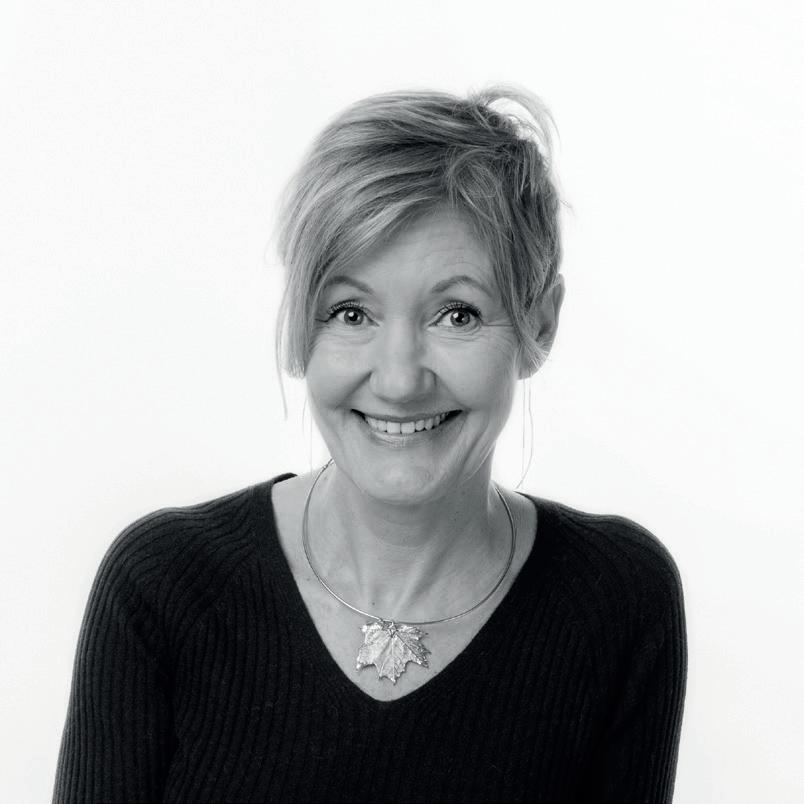

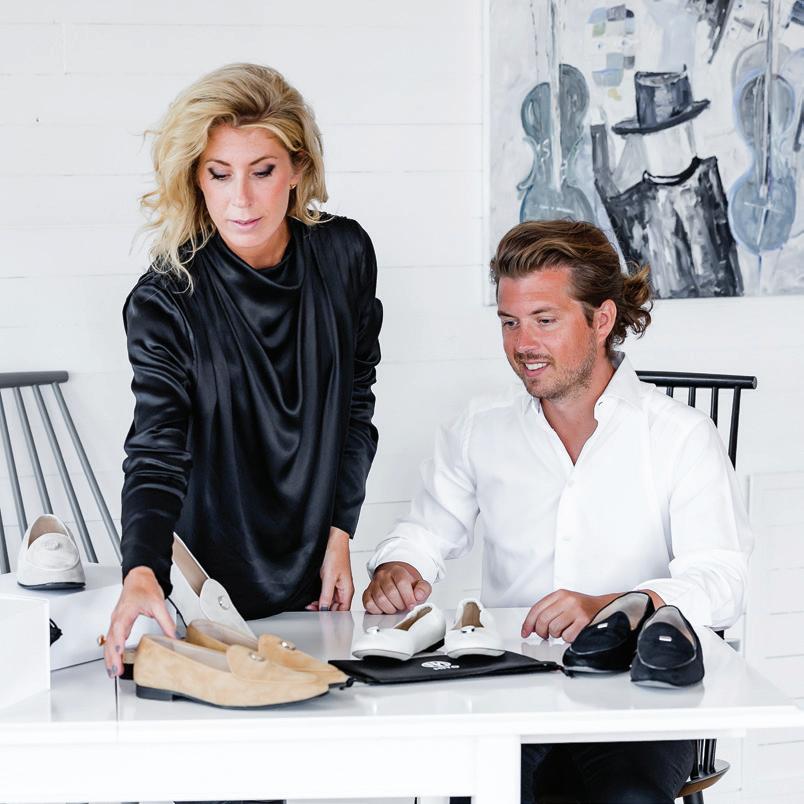
PAGE 34
This month, Swedes all over the globe are voting in the Swedish general elections. Although on the rise, voter turnout among expat Swedes has been relatively low historically. But it might be worth re membering that Swedes living abroad played a crucial part in the 1979 election. In fact, their votes even changed the result at the very last minute. Having counted all votes cast within the Swedish borders, the Social Democratic Party with support from the Left Party, was leading by one seat and looked to be the winners. However, votes from Swedes abroad tipped the balance, and the Centre-Liberal-Conserv ative coalition, consisting of The Moderate Party, The Centre Party and The Liberals, won the election with a one seat majority. According to the Link 1979, the new Government’s main issues were to fight the rising inflation and review the energy policy to decrease energy consumption. Sounds familiar?
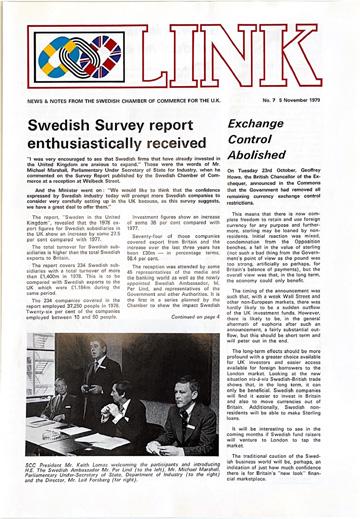
6
THE LINK • ISSUE 362 • SEPTEMBER 2022
Defending democracy in turbulent times
In the last six months, Europe has once again changed in ways that are difficult to comprehend. Seeping through all levels of society, the consequences of the Russian invasion are affecting everything from high-level diplomacy to energy, finance and – perhaps more than any other – defence and security. The Link spoke to Micael Johansson, President and CEO of SCC patron Saab, about the current security situation in Europe, what it means for Sweden, the defence industry and for Saab.
BY: SAGA PALMÉR
In only three years as President and CEO, Micael Johansson has steered Saab through a pandemic, and now the begin ning of the war in Ukraine. “What is hap pening in Ukraine is a tremendous tragedy – a disaster. I never thought I would live to see another war in Europe,” Micael says. “In fact, a big part of what we do at Saab is trying to prevent things like these from happening. Providing the defence forces with good systems to protect countries is the foundation for diplomatic balance and sustainability.”
On 24 February, Russia invaded Ukraine, and the chain of events that followed would have been hard to imagine just a few months ago – being both widespread, long-term, and affecting all levels of socie ty. Since then, several countries have made U-turns when it comes to their defence strategies and spendings, with Sweden being a prime example. “The speed of the decision-making we have seen in Sweden lately is incredible, especially considering the size of the issue. I mean, less than a
year ago, Sweden was not even consider ing joining NATO. Now, we have filed the application and even started making the necessary adjustments.”
As a NATO member, Sweden is expected to spend 2% of its GDP on defence – a major change compared to the previous 1.2%.
Apart from the financial impact, a member ship would create a need for a complete internal reorganisation, affecting various levels and the thousands of people work ing within the national defence industry.
“Sweden’s aim to join NATO is very, very important. Not only from a political point of view, but also from the defence forces and the industrial point of view. There are 10,000 people working day and night to organise our defence, and they will have to learn what this new situation means, including the new policies, structures and so on. A lot of things will change in the organisation if Sweden is to become a fullfledged member of NATO.”
According to Micael, a NATO membership would also lead to increased collaboration within the Nordic region. With Sweden and Finland included, all Nordic countries would be members of the alliance, creating opportunities for a cross-border defence cooperation, but also increasing the re sponsibility of the new member countries.
“The Nordic countries will have to come together now, and Sweden will have to take the neighbouring countries into consideration when planning its defence strategy. But we are in a good position from a defence capability perspective –Sweden is a country with a big defence industry, more than 10,000 engineers and 15,000 employees, meaning that we have capability to support both Sweden and the rest of the Nordic region.”

“The speed of the decision-making we have seen lately is incredible.”
Micael Johansson, President and CEO of Saab. Photo: Filip Palmbäck.
7
Rebalancing Europe
Drastic changes in defence strategies are not only taking place in the North. Micael mentions several countries that started rethinking the balance between themselves, Europe and the rest of the world.
“I believe that many countries are waking up, realising that Europe needs to take more responsibility within NATO, instead of leaning on the US, as before. For exam ple, Germany is completely changing direc tion and choosing to spend an enormous amount of money on defence, taking on a much more forward leaning role in NATO than before.”
Several countries within the EU have decided to join forces to increase their defence capabilities. However, Micael says, there has been a parallel and rising trend of nationalism, where countries no longer want to feel too dependent on others.

“The increasing demands on things such as shorter lead times, higher volumes, and so on, have led to many new collaborative initiatives coming up in the EU. Simul taneously, we have seen tendencies to nationalism on the rise, with many national defence industries sort of protecting their territories locally, defending their own backyards.”
Slow to learn, maybe, quick to adapt, certainly
Having spent 37 years in the company, Micael has worked in multiple positions, gaining vast experience in everything from security and technology to sustainability and international relations. When first join ing in 1985, the defence related business was handled by Ericsson, where he worked within engineering and technology. “Ericsson was handling the defence related business back in the 80s and the 90s, which is when I started working there as an engi
neer. At first, I was doing technologies and didn’t really know where I was going next, then I quickly got into project management and line management, systems engineer ing and image processing.“
When the defence department was relo cated, first into a joint venture between Ericsson and Saab, Micael was named Deputy CEO. Later, the department would fully become incorporated in Saab. “In the 1990s, there were lots of discussions around the defence part being better locat ed within Saab than Ericsson. So, they put a new company together – a joint venture between the two – and I was moved at the same time, heading one of the divisions as Deputy CEO. Then after only a year or so, Saab became the main owner.”
In 2006, Saab acquired the full part of Ericsson’s defence activities, and 13 years later, in 2019, Micael was named President and CEO, succeeding Håkan Buskhe. He says he never aimed for that position in particular, but that he always tried to do the best possible job regardless of his role. “It was never my plan to become CEO. I’ve had a long run within the company, and I always focused fully on my current role, only gradually realising the impact and importance of the business we do,“ he says and continues: “Sometimes I say that I’m a slow learner, since it took me 34 years to become CEO.“
A changing security landscape, a changing Saab
Micael always carries a list of priorities, although they can change quickly and dras tically. In the wake of last year’s events, many businesses have been forced into re-thinking their strategies, and accord ing to Micael, Saab is no exception. “We are doing a lot of changes now due to the war of course, but we started way earlier than that, due to COVID-19. The pandemic
showed many businesses how vulnerable they are when unexpected things happen. For us, that meant for example starting to regionalise our supply chains to make sure that we can continue our operations even with things such as pandemics or wars happening.”
Micael believes in a so called multi-do mestic approach, where Saab moves away from being seen as a Swedish company with operations in other countries, towards an international business with a strong local connection. “We are increasing our presence in a few selected countries, like the UK, US, Australia, and Germany, where we hope to increase capacity, productivity and efficiency, to shorten lead times and be able to create volumes that we haven’t seen before. This is a very important priori ty to me.” Saab currently employs over 300 people in the UK, in cities such as London, Westbury, Hull and Fareham, and partners with nearly 1,000 companies.
Apart from expanding the business and deepening the local connection, technolo gy and development are two key priorities for Saab when looking ahead. Bearing the turbulence of the last years in mind, many might find it hard to predict what the future holds, so instead of speculating, Saab is aiming to prepare for the unexpected. “We continually invest heavily in R&D to keep up with the pace of technology. The devel opment within areas such as AI, cloud tech and machine learning is incredible, and it is crucial for us to absorb those technolo gies and keep up with the progress. This way, we can stay competitive and hope fully be prepared for whatever the future holds.”
Saab is a leading defence and security company with an enduring mission, to help nations keep their people and society safe. Empowered by its 18,000 people, Saab uses technology to create a safer, more sustainable and more equitable world. The team designs, manufactures and maintains advanced sys tems in aeronautics, weapons, command and control, sensors and underwater systems.
Saab is headquartered in Sweden, but has ma jor operations all over the world that are part of the domestic defence capability of several nations. In 2019, Saab defined three strategic markets: Australia, the UK and the US, where its local presence will be further strengthened. Saab currently employs over 300 people in the UK, in cities such as London, Westbury, Hull and Fareham, and partners with nearly 1,000 companies.
The UK is one of Saab’s strategic markets. Photo: Saab.
8 LINK feature ABOUT SAAB
Setting new standards for the mining industry
Mining is one of the world’s oldest industries, however, newcomer SigmaRoc PLC is aiming to set new standards for the whole industry. SigmaRoc was founded in 2016 with the goal to set itself apart from others within the indus try. “The mining industry is usually a very integrated sector; everything depends on the headquarters,” says Max Vermorken, Chief Executive Officer at SCC patron firm SigmaRoc. Since its inception, SigmaRoc’s aim has been to consolidate the quarried materials space in Northern Europe using a decentralised approach; “because ultimately everything revolves around the mine.”
BY: ANNABEL DAISLEY
Over the years, SigmaRoc’s decentralised ap proach has resonated with both investors and employees, which has allowed the business to grow. As of today, SigmaRoc includes six platforms, one of them being Nordkalk which is Northern Europe’s leading limestone mining company.
“SigmaRoc had a clear vision of how the group should operate. The people working in the mines are the ones that really know
what is going on, so we let them decide rather than someone else in a head office,” says Max Vermorken, Chief Executive Officer at SigmaRoc.
Fighting myths
According to Max, the mining industry is a traditional sector with various common
He says that there is a clear shift with more women entering the industry. There is also a misconception that mines are always in remote locations. “Actually, mines are often located not more than five kilometres from a town or city,” says Max. Following this, it creates a lot of job opportunities for the town population. One example is one of Sigma Roc’s largest mines located right by the town of Lappeenranta, in Finland.
Scandinavian aim With a lot of business opportunities in Scan dinavia, SigmaRoc recently expanded its foot print in Northern Europe with the acquisition of Nordkalk. “This was a significant milestone for the group. We always had the ambition to go into Scandinavia. We wanted to do that from the beginning,” says Max.
SigmaRoc’s acquisition Nordkalk has mines in Finland, Sweden, Norway, Estonia and Poland.
“We always had the ambition to go into Scandinavia. We wanted to do that from the beginning.”
9 LINK feature misconceptions. “It is seen as a very maledominated business because around 50 years ago it was all manual labour. Nowadays, the machinery and technology are so advanced that this doesn’t happen anymore.”
When deciding whether they should go to Finland, Sweden, or Norway, the team got help from their business partner in the Nordics. “Last year, we were able to purchase Nordkalk which put us on the radar in terms of scale”. With this investment, SigmaRoc didn’t have to choose between countries as Nordkalk has mines in all three countries, as well as in Estonia and Poland.
ically tried to install wind farms or solar panels in all our mining operations, and we are in the process to start sourcing our own energy.”
Other initiatives include filtering water, as limestone mining consumes large amounts of water. SigmaRoc filters the water that they use and pumps it back into the water network which creates a circular model for its water consumption.
Sourcing more materials locally will not only lead to more job opportunities, but there is also a positive impact on the environment. “By shifting focus to finding more local materials, shipping and storage gets reduced, which in turn also reduces emissions and energy usage.”
Sustainability in the mining sector
Today, most companies are expected to align their business strategy with sustainability targets. “We’re a business and we need to be a responsible one. We can’t be a company that pollutes the environment,” says Max. As the mining industry often is perceived as pol luting, it is important to minimise the impact on our planet. Sustainability is well integrated into SigmaRoc’s business plan and opera tions. “We are a net contributor to the globe. If you’re not contributing to the globe, then at some point in time, it’s going horribly wrong.” SigmaRoc has taken several initiatives to limit its environmental impact. “We have systemat
Another critical part of SigmaRoc’s strategy is to find innovative ways in which it can meet the environmental concerns among communi ties and authorities where they operate. In order to do so, the company often works with partners outside of the group which has, for example, resulted in working on an innova tive concept where baby diapers are recycled and used in the production of asphalt. “We recycle thousands of baby diapers, which otherwise would have gone to waste and use it in road construction. We shred them into fibres, and then they get used in the produc tion of asphalt for roads.”
The future of mining is local Acting locally in all aspects is key to a bright future for the mining industry, according to Max. “As communities, we will have to find the materials needed more locally. This means that there are more mines and more local mining. And I think that it brings lots of opportunities.”
According to Max, the industry is shifting in several aspects. “One big change is that the attitude towards mining is more open. Mines are not necessarily seen as dirty and affect ing the community negatively anymore, but rather as a source to find good materials that can be used in several different products.”
Trends in mining are shifting and the future of the industry is filled with opportunities. By setting new industry standards, SigmaRoc is hoping to lead the way toward operating under new conditions.
 Max Vermorken at one of SigmaRoc’s mines. Photo: SigmaRoc.
Max Vermorken at one of SigmaRoc’s mines. Photo: SigmaRoc.
“If you’re not contribut ing to the globe, then at some point in time, it’s going horribly wrong. ”
“By shifting focus to find ing more local materials, shipping and storage gets reduced, which in turn also reduces emissions and energy usage.”
10 LINK feature
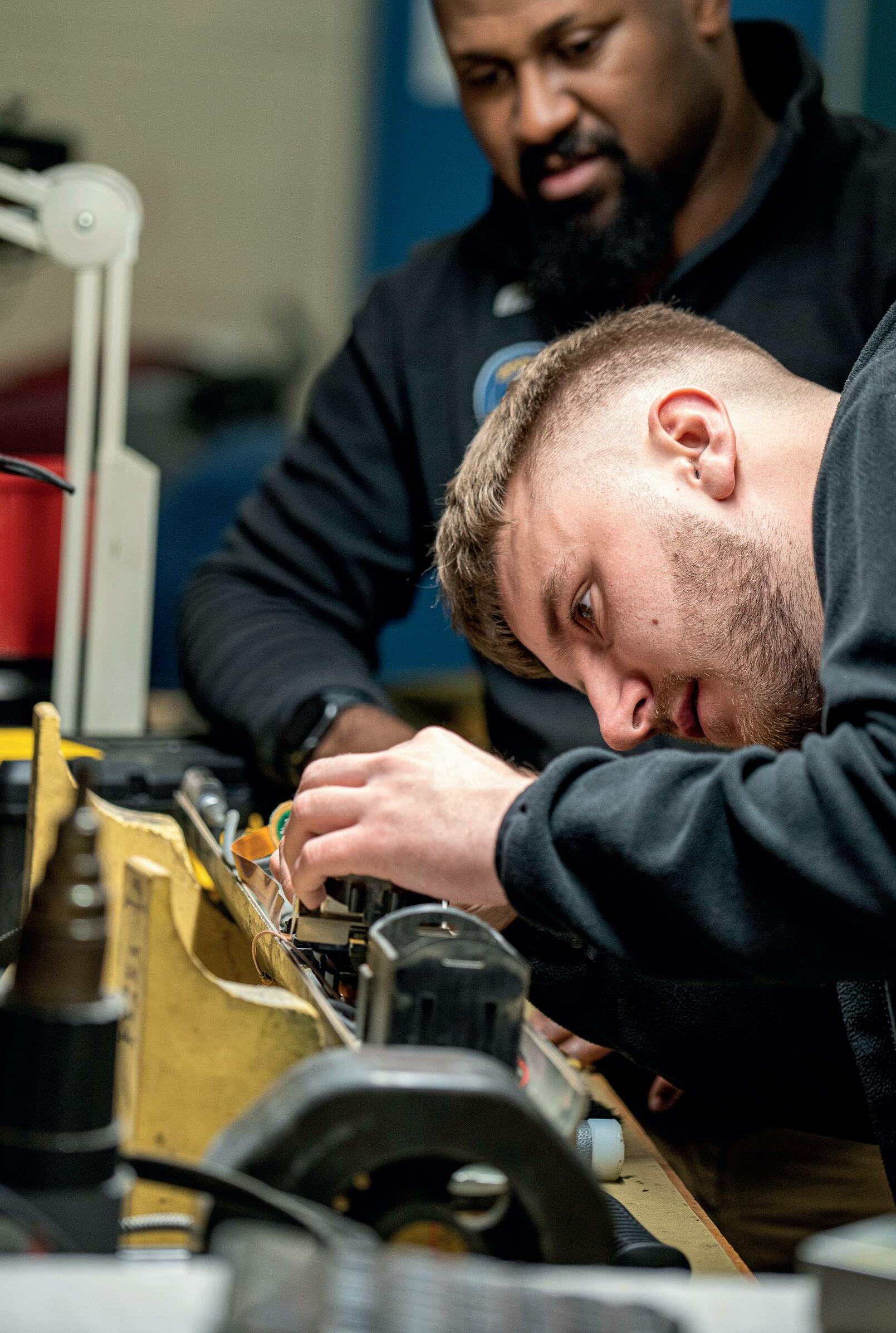
Vital and virtual How Doctrin is digitalising UK healthcare
Both Sweden and the UK are world leaders in life sciences, leading the way in facing global challenges, underlined by the recently signed Memorandum of Understanding in life sciences between the countries. Most recently, the pandemic put a strain on healthcare providers, forcing new innovative ways of providing care to emerge. SCC member Doctrin, who provides a digital platform for patient care, has seen a surge in the use of its services. “There was resistance to using these platforms from patients in the beginning. Today, on the other hand, many people are willing to use them, initially because of the pandemic – now as it gives improved access to care,” says Craig Oates, Managing Director at Doctrin, UK.
BY: ANNABEL DAISLEY
Founded in Sweden in 2016, Doctrin is an online consultation and care navigation platform designed to provide health care services digi tally to patients. This includes primary, hospital, specialised healthcare, and dental, meaning that patients can meet their healthcare provider online instead of physically. In 2020, Doctrin entered the UK market to help healthcare pro viders across the country to free up resources so that they can spend more time on patient care and support the shift to integrated care.

Craig says that caregivers using the Doctrin platform affirm a substantial change in being more efficient and the way they can give care to their patients. “It’s all about giving the pa tient a different way into the practice as well as letting them access care in a very safe clinical way. Offering patients this platform where they can communicate with different care settings, in a safe space, allows more flexibility for both parties.”
Bringing care units together
Looking back at the past three years, a lot can be learned, especially regarding the way peo ple seek care and how it is provided. “Before the pandemic, people wanted physical care and not digital, but all of that has changed,” says Craig.

Apart from people looking for more digital solu tions, the willingness to use different digital resources is increasing, both from a patient’s and the care givers’ point of view. “I think the
game changer today is that people are willing to use digiphysical help, before the pandemic people were very resistant.”
Doctrin is a platform where patients can be diagnosed and treated without having to physi cally see their healthcare provider unless they specifically need to do so, saving resources time, and improving the quality of care. “We have intelligence behind our platform, which I call ‘the magic sorting hat’. The patient takes a questionnaire about their health, and takes them straight to the right care team.”
Leading the way
Earlier this year, Sweden and the UK signed a Memorandum of Understanding, underlining the countries’ commitment to co-operate in developing new technologies and treatments. Craig is clear about Sweden and the UK being at the forefront of developing solutions in the life sciences field. “Part of that is coming from a real interest and passion for health. There’s a real drive to innovate and do things differently. With a relentless focus on the patient and caregiver.”
He points out that part of this is thanks to the digital maturity in Sweden and how technologi cal systems are used in healthcare, but the UK is not far behind. “Sweden has always led the way in this kind of care navigator base, and the UK is rapidly growing in this area.”
Also, both countries have similar medical models and different strengths which create synergies. “Sweden is held in such high regard in the UK, as is the UK’s NHS internationally, and together these two are incredibly powerful for each other’s markets and growth,” says Craig.
The future of Doctrin
Glancing into the future, Craig is positive about the outlook for Doctrin. “We want to be a healthcare unicorn, and touch a billion lives as well as transform them.” He says that Doctrin is a big step into what the future of healthcare will and could look like. “The future for me is that we have a platform that is outstanding, supported by a team who help clients use it to radically transform how they deliver care to patients.”
A passion to innovate as well as the global pandemic has pushed the life sciences field to adopt new conditions for caregiving. “What you see is caregivers having a better experi ence. They’re not working as long hours, and they’re able to deliver improved care,” Craig says.
Not only is it creating a space where patients and caregivers can communicate directly, but both parties are experiencing a better way of delivering and receiving care. “The secret sauce goes back to the people, and it’s not just their skills, their knowledge or qualifications –it’s their passion for health.”
Demonstration of what Doctrins’ platform looks like when seeking care. Photo: Doctrin.
Craig Oates, Managing Director, UK. Photo: Doctrin.
12 LINK FEATURE
Working with cancer
A cancer diagnosis will most likely affect several dimensions of life – home, finances, relationships and, not least, work. Making the right adjustments to your work-life and being received in the right way by your manager and co-workers, can make a big difference in the process that follows. The Link spoke to Emma Blackmore, Chief Marketing Officer at SCC member and social impact community War On Cancer, about how to deal with cancer in the workplace – whether you are a colleague, manager or living with cancer yourself.
BY: SAGA PALMÉR
“Cancer is very individual, and it can be hard to make sweeping statements. Both the ef fects and necessary adjustments depend on the kind of cancer, the stage, the treatment, and the person in question,” Emma says and continues: ”However, we see that about 80% experience a decline in mental health regard less of the diagnosis, because of a fear of the unknown, feeling overwhelmed, helpless and alone, and experiencing a loss of identity.”
As cancer can take on many faces and forms, there is no one right way to handle it. Howev er, there are a few things that can be helpful. Emma emphasises the importance of taking the non-physical aspect into consideration, and viewing psychological needs as equally important as physical ones when adjusting to the new reality.
an unwelcome change for anyone who finds purpose in working, and enjoys going to the office. “This abrupt change may be difficult, especially if you genuinely enjoy your job, care about what you do, or are career-driven. Try to work with acceptance around having to take a break from your work and focus your thoughts on the present.”
Replace old routines
Emma recommends replacing old routines with new ones. For example, instead of going to work, one can create new habits and goals for the day, while still making room for rest and recovery. “To maintain some level of con trol and normalcy, be intentional about which routines you want to implement and how you aim to structure your days that bring you a sense of accomplishment and joy. Remember that going through cancer is work in itself, it’s just unpaid work. So don’t think of yourself as ‘unproductive’.”
although there are a few people who should be informed regardless. “Who you decide to tell and when is up to you, except for telling your HR department or closest manager. You should inform them early on, regardless if you need time off. It informs your manager of the added stress you’re most probably experi encing, whether it be physical, emotional or psychological.”
Emma says that there are many misconcep tions about cancer in the workplace – ranging from false beliefs about inability to work, to expectations that one can return to work im mediately after physical recovery. In addition, many businesses don’t have sick policies that are compatible with cancer.
Cancer and work life
The effects following cancer depend on various factors – such as cancer diagnosis, income, treatment, and response – and all these will play a role when it comes to mak ing adjustments. Depending on the initial situ ation, some changes might be more urgent than others, such as routines and spendings. “A significant impact is the financial insecu rity and added financial stress. Make sure to understand what compensation or insurance options you have – both during and after can cer treatment. Taking action on this is hugely important in easing the mental health effects and added stress of cancer.”
While dealing with the disease, it is common to need to cut down on working hours. This might add to the financial stress and can be
For some, the time spent away from work even creates a well-needed space for reflec tion. According to Emma, many of those recovering from cancer come to re-evaluate their previous choices, and they might even decide to make big changes. By using this time on things such as meditation and intro spection, many come to find it truly valuable, even life-changing. “Taking some time away from your work can offer new perspectives, and career changes are common following cancer, because it makes you aware of what you truly value. According to national NGO Cancer and Careers , people who survive cancer tend to seek out more creative and meaningful work and leisure. If you have the energy, dare to contemplate, be curious and sit with your thoughts.”
Cancer in the workplace
For someone who continues going to the office after receiving the diagnosis, it might be hard to tell co-workers. Many find it helpful to reflect upon if, how and when to tell them,
“Most company sickness policies have not been written with cancer in mind. HR teams should review their policies to ascertain whether they’d be effective for someone facing cancer. For example, it can easily take someone a year to recover from chemother apy, so the standard 12-week phased return to work simply wouldn’t be enough in many cases.”
To avoid additional stress or unwelcome sur prises, it can be helpful to ask a loved one or a local union for advice, and to look up things such as employee rights.
A colleague with cancer
For most people, it is difficult to approach a co-worker dealing with cancer. But no matter how tricky the topic, it is important to have the right response when they decide to open up about it. Emma says to avoid things such as making comparisons to someone else’s cancer, to say that everything will be okay,
“About 80% experience a decline in mental health regardless of the diagnosis.”
“People who survive cancer tend to seek out more creative and mean ingful work and leisure. ”
13
LINK work life balance
act pitiful or to equalise the person with the disease. “Cancer is a taboo subject that many people don’t know how to approach or handle, and oftentimes when people who have cancer open up, others feel uncomfort able and express this discomfort or sadness through pity. This is unhelpful.” Instead, focus on being a good listener when needed, and on treating the person as normally as pos sible.
Key pointers to be supportive
Millions of people recover from cancer every year, and Emma says it is important to remember – whether it is yourself, a col league or a loved one dealing with it – that the disease is only one of many chapters in someone’s life. “Remember that cancer isn’t the end of the story. It’s part of it. Let it shape, guide, and change you – in difficulty, there is always hope. Train your mind to see the possibilities, in the present and for the future, and in doing so, improve your mental health and strengthen you all around.“

Patience
1Understanding that cancer is not a “it’s here, now it’s gone” kind of sickness. It’s also not just a physical experience but also mental, social, and psychological.
Make your colleague feel like their regular selves
Speak and joke with them as usual, and invite them to social gatherings. Let them decide what they can or cannot do, don’t predetermine that for them.
Be normal and genuine in your concern
Pity and alienation are far too common responses when people interact with someone who has cancer. Show genuine care but don’t pity them or talk around the subject.
Learn More
Offer what you can to help
Questions like “Is there anything I can do?” leaves people having to ask for help, guess what it is you can help with, or feel like a burden. Whatever it is that you feel you can do, offer that specifically.
If you would like to learn more about War On Cancer, find more advice on how to deal with the disease, or connect with others going through a similar experience, visit the platform.
A few things to remember when approaching someone with cancer
Emma Blackmore, Chief Marketing Officer at War On Cancer. Photo: War On Cancer.
14 LINK work life balance
2 3
4
Translating in between the lines
Having a localisation strategy and making use of language capabilities within your business can have real impact on its success. But translating from one language to another is not as simple as ABC. Culture, context, and what is said in between the lines are all important keys to reach the right end result. And if not done properly, a sloppy translation can reflect badly on the quality of your product. We sat down with Anu Carnegie-Brown, Managing Director of Sandberg Translation Partners, to discuss why language matters and why it is important to get it right.
BY: JONAS EKLUND
Delivering 200 language projects on a daily basis and translating roughly 60 million words every year, SCC member firm Sandberg Trans lation Partners is one of the world’s leading translation service companies specialising in the Nordic region. “Swedish is the language that we translate most into. I think it speaks of the size of the market and maybe also the fact that Sweden is the first Nordic market that companies choose when they come to our region,” says Anu Carnegie-Brown, Managing Director of Sandberg Translation Partners.
Headquartered in Hampshire, Sandberg em ploys 115 people in five countries. “The major ity of them are linguists. We have 65 in-house translators, roughly 30 project managers, and a very skilled language technology team.” Apart from translation services, the company offers content creation, content adaptation, linguistic validation, and transcription. “Sometimes we also do artificial intelligence projects like data tagging, or sentiment analysis.”
Why language matters
From a business point of view, it is evident to Anu why language matters – and why it is important to get translations right. “The first reason is simply ‘can’t read, won’t buy’. When it comes to buying online, for example, research shows that 76% of online shoppers prefer to buy products with information in their native language. A staggering 40% will not buy from websites in languages other than their own.”
Since the Nordic countries are known for their high level of education and a population with high proficiency in the English language, Anu says it is often assumed that Nordic people are comfortable with making purchasing or business decisions in a foreign language. “This is not the case. Like all people, we feel more confident using our mother tongue.”
The quality of the content accompanying a product may also become a reflection on the quality of the product. “You can either create confidence in your customers with your con
tent, or you can undermine that confidence. Potential customers may think ‘well, if the company is sloppy about this, perhaps they are sloppy about other things as well’.”
Successful businesses make use of lan guage capabilities
Operating in a multi-language setting can indeed be cumbersome, but making use of language capabilities within a business can present lucrative opportunities. “There was a really interesting report published last year by Aston University’s Business School. They inter viewed more than 400 UK SMEs from different sectors about their language capabilities. The results revealed that SMEs who make use of language capabilities are 30% more successful in exporting than those who do not.”
Also, employing people in new markets means that all materials related to their employment, starting from agreements to occupational health and other HR-related areas, need to be translated. “And let’s not forget suppli ers either. Many of the content types I have mentioned here also exist in your dealings with your suppliers. You can show commitment by translating them to your suppliers’ language.”
When machines get it wrong
As technology continues to evolve, letting machines do the translation work for you has become something of a common practise, but not always with the desired result. In fact, human post-editing of machine translations is one of the services Sandberg provides. “A machine can only take what is in its trained memory and try to piece together the transla tions from that,” Anu explains and says that their translators often spot both obvious and hilarious translations made by machines. “A machine may struggle with long compound words, which are quite common in Swedish and Finnish, because it doesn’t know where one word ends and the other starts. We came across a machine translation engine having translated ‘antiklotterbehandling’ as ‘antique lottery treatment’ instead of anti-graffiti coat ing which is what the original text obviously meant. If and when you do choose to use ma chines, you should still always have a human check or post-edit the engine’s output.”
Many types of content need translating
For a global business, translating customerfacing promotional material, like a company website, might seem obvious, but there is a lot of other customer-oriented content of a more informative nature that needs to be taken into account. “There might be legal regulations that dictate that your product has to be accompa nied by a product description or instructions in the language of the market that you’re taking it to,” Anu says and mentions pharmaceuticals as an example of products surrounded by legal requirements.
There are plenty of examples where machines have gotten a translation wrong and content has been published without human post-ed iting. Anu mentions the online shop of Flying Tiger Copenhagen, stocking more than 1,500 products and new limited-edition collections coming out every other week. “You might understand why they have chosen to use machine translation for their online shop.” The company seemingly produces its content and product names in English and then machine translates them into other languages. “My fa vourite product so far is what they call a ‘cake server’ in English. Their Swedish translation is ‘tårtserver’ for what should have been ‘tårt
15 LINK FEATURE
You can either create confidence in your customers with your content, or you can undermine that confidence.
spade’ but it is the Finnish that really makes me laugh since it has become ‘kakkupalvelija’, which means ‘cake servant’. I literally can’t look at it without smiling.”
Translating in between the lines Translating from one language to another is indeed not as easy as it seems, even for a human. Culture, context, and what is said in between the lines, all come into play when trying to get the tone of voice right. “A brand that does not have detailed guidelines for its style and tone of voice for its different markets, leaves itself open to interpretation.
In a multilingual and multicultural setting, the company’s universal brand guide should come with market-specific guidelines that cover the cultural differences between regions and allow for a range in the brand’s register and voice in different languages.”
Anu says that the way we express politeness, or the degree of formality when addressing people, are both examples of how the Nordic languages differ from English. “In general, the English tone of voice is more polite than that of the Nordic languages. When localising, we often remove words like please, thank you, sorry and unfortunately – they don’t feature in our Nordic speech as frequently and can thus sound unnatural in written translations too.”
And when it comes to expressing excellence, the Nordic languages adopt a more neutral tone of voice than English, particularly US Eng lish. “In our cultures, modesty is a virtue and singing your own praises is seen as tasteless bragging.”
Using inclusive language
According to Anu, there is an increasing focus on how to use language to include those that otherwise might be marginalised, with especially race and gender receiving the most attention. Also here, we can see differences between languages and cultures. “References to race and ethnicity are more common in English texts, particularly in US English, than in the Nordics. We tend to avoid mentioning skin colour and ethnicity if it is not specifically relevant in the context. But all Nordic lan
guages are working towards gender-neutral job titles, for example, politibetjent ‘police officer’ instead of politimand ‘policeman’ in Danish, or esihenkilö ‘supervisor’ instead of esimies ‘fore man’ in Finnish. In Norway, there was even a great debate on whether jordmor ‘midwife’ should be changed, but it was eventually left untouched.”

Being a helpful client
One of the trickier assignments a translator comes across has surprisingly nothing to do with the subject matter, but with the amount of context that is provided. “Software strings are really tricky, because to translate them correctly, the translator needs to know what context they appear in, and also the function. Sometimes you are given just one word,” Anu says. “Translators don’t translate in a vacuum. Our decisions in how we translate are informed by anything and everything. Do
you have an established company glossary? Please give it to us. Have you used translation memories in the past? Let’s share them. One of the most successful things that makes it easy for translators to work is a good client who wants to collaborate, support, and be involved as well.”
Measuring localisation ROI
If someone is still doubting the value localised content adds to a business, Anu says that in stead of tracking how much translated content you have, it is simple to measure and track how a digital product or content is actually performing. “We have written an e-book full of hands-on tips for measuring localisation ROI. I know that there are some decision makers who still look at translation simply as a cost, but to have a localisation strategy is definitely an investment in your organisation’s success.”
Anu Carnegie-Brown, Managing Director of Sandberg Translation Partners. Photo: Sandberg.
16 LINK FEATURE
To have a localisation strategy is definitely an investment in your organisation’s success.

BoKlok’s sustainable homes could help solve the UK’s housing deficit
With a growing population and productions of homes being restricted due to planning regulations and land supply shortages, the UK has in recent years tackled an under-supply of housing. The government has an ambition of build ing 300,000 new homes yearly, that is yet to be reached. Swedish residential housing company, BoKlok might be the answer the government is looking for. “By offering sustainable quality homes for the many people, our aim is to pro vide opportunities for those who want a home of their own as well as lowering the impact on the environment,” says Graeme Culliton, BoKlok UK Managing Director and Country Manager.
ordinary incomes. This is how the idea of offer ing quality homes for “the many people” was born.
Since then, more than 14,000 new homes have been delivered in the Nordics. In June 2019, the company launched in the UK, with a new take on house building. “Bringing together the expertise of both companies, our homes are built primarily from wood, using a smart, industrialised, and efficient process,” says Graeme.
Doing things differently
According to Graeme, expanding BoKlok and creating a presence in the UK has always been a long-term ambition as it is one of Skanska’s home markets. “People do business with people, and you need to be cognisant of this to be able to relate and offer mutual benefits.”
In order to do this, specialists were hired to understand the UK’s planning and housing regulations, which helped BoKlok to quickly adapt to the UK market.
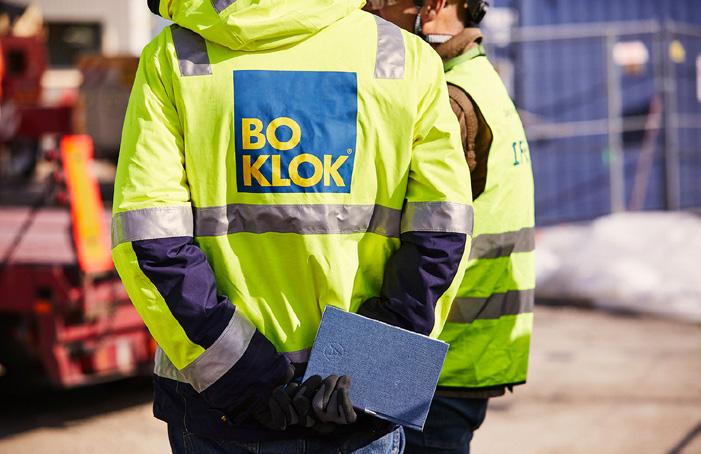
According to a recent report published by the House of Commons Library, there have been calls for improvements within the building industry as the UK has been slow to adopt new innovations. As a result, the lack of new methods to construct houses has affected the number that have been built. “The UK is a large market with a significant housing deficit. The government aims to build 300,000 new homes each year to match demand, as well as keep the cost of housing affordable, but meet ing these targets is a struggle,” adds Graeme.
These issues have increased further due to disruptions in the supply chain, such as re duced capacity in manufacturing and shipping materials, caused by Brexit and the Covid-19 pandemic combined.
A sustainable and affordable solution
Founded in 1995 as a housing partnership between Skanska, a multinational construction and development company head quartered in Sweden, and IKEA, the home furnishing giant − BoKlok aims to make housing accessible to more people. Both Skanska’s former president, Melker Schörling, and IKEA’s founding father, Ingvar Kamprad saw a need in the market to build more homes for ordinary people with
As there is a great need in the UK for both more and affordable homes, as well as more innovative methods of building, BoKlok is steadily gaining ground in its new market. By the end of 2019, the company had achieved planning permission to build 173 homes in Bristol, which was their first development. Since then, a lot has happened for the com pany, and the UK continues to be an important market. “It’s an important market for BoKlok because there is a significant opportunity to improve the availability of high-quality, sustain able housing for more people,” says Graeme.
Regarding the differences between the Swed ish and the UK business markets, Graeme points out some factors that set the countries apart. “Firstly, the legal system and steps to selling a home are different. The UK is more regulated in timeframes which can prevent some of the opportunity to sell off-plan.” Ulti mately, this affects how the countries respond to customer housing needs as there are clear differences.
Read the full story on fromswedentotuk.co.uk
Learn more about BoKlok’s journey to the UK, along with insights, business cases, and opportunities for Swedish business within clean growth, fintech, life sciences and other UK key sectors.
The campaign “From Sweden to the UK, then the world” is a collaboration between the British Embassy Stockholm and the Swedish Chamber of Commerce for the UK.
“Bringing together the ex pertise of both companies, our homes are built pri marily from wood, using a smart, industrialised, and efficient process.”
BoKlok launched in the UK in 2019.
LINK FROM SWEDEN TO THE UK www.fromswedentouk.co.uk
Swedish HEALTH- AND MEDTECH MAKING A MARK IN THE UK
The UK is home to the world’s oldest and largest universal healthcare system and is a global leader in digital health innovation. A working partnership approach between industry sectors and government is fuelling billions of pounds of funding to deliver the next generation of life changing treatments and technologies, opening up great opportunities for Swedish health- and medtech companies. In this edition of the Link, we look closer at the UK life sciences landscape and some of the Swedish health- and medtech businesses that are making a mark in the UK.
BY: JONAS EKLUND
THE UK ASPIRING TO BECOME A ‘SCIENCE SUPERPOWER’
The UK is an attractive market for investment in life sciences, ranking second only to the United States in the number of Foreign Direct Investment projects financed in 2019. Already a globally leading location for life sciences, the UK government has set the ambition for the country to be a “Science Superpower”. To support its science and research ecosystem, the UK is investing 2.4% of its GDP in research and development by 2027.
THE UK MEDTECH SECTOR IN NUMBERS
In total, the medtech sector, including digital health (healthtech) as one of its segments, employs 138,100 people in the UK. The combined turnover of the medtech sector is £27.6bn.
The digital health segment employs 14,400 people and has a total turnover of £1.9bn. Between 2011 to 2020, the segment has increased employment by 4,500 and turnover by £640m.
WORLD-LEADING UNIVERSITIES
UK universities feature in top positions of global rankings for life sciences teaching and research. The University of Cam bridge and University of Oxford both rank in the top five in Times Higher Education World University Rankings 2021.
Also, UK researchers produce the third highest number of life sciences papers in high quality journals worldwide, after the USA and China.
NHS: THE WORLD’S LARGEST HEALTHCARE SYSTEM
One of the biggest driving forces for companies coming into the UK is the National Health Service (NHS). The NHS serves a population of over 66 million people and seeks the best innovations and solutions from around the world. The NHS is known as the world’s largest integrated healthcare system and it operates across the UK via NHS Scotland, NHS Wales, NHS Northern Ireland and NHS England, with NHS England covering nearly 85% of the population. NHS England alone, employs around 1.2 million full-time equivalent staff.
NHSX: FOCUS ON DIGITAL HEALTH

Some of the recent UK policy changes that have come along in the field of digital health include the founding of NHSX in April 2019 and the launch of the NHS Long Term Plan in January 2019. Structural challenges such as an aging population, funding and workforce pressure have spurred the need for a new service model in the UK healthcare sector, with a larger focus on prevention and embracing technology. NHSX is set to drive digital transformation and lead IT policy across the NHS by bringing together teams from the Department of Health and Social Care (DHSC), NHS England and NHS Improvement into one central unit.
Sources: www.gov.uk, www.fromswedentouk.co.uk, www.kingsfund.org.uk
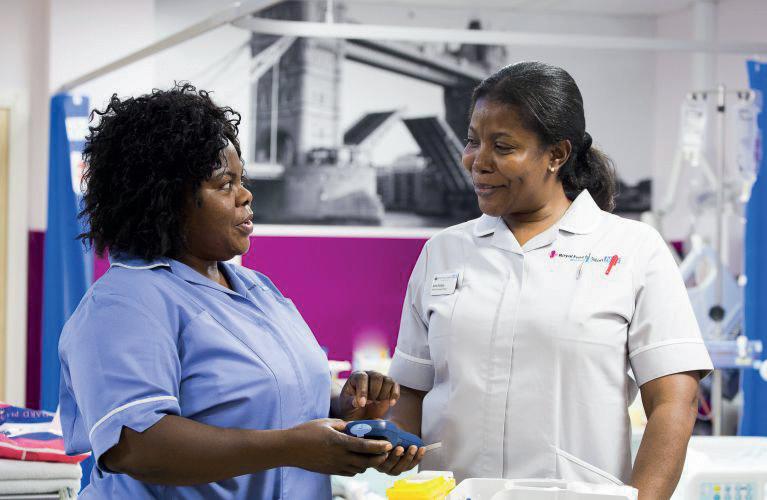
19 LINK SWEDISH FOOTPRINT IN THE UK
No.2 £27.6bn Top 5
CLUSTERS AND HOTSPOTS
Looking at medtech employment rates, there are hotspots spread across the UK. Of the 138,100 employees, the South East, London, and the East of England account for 41% of all employments. The second highest region by employ ment is Yorkshire and The Humber, 11% of the sector total.
Northern Ireland’s economy is supported by Invest Northern Ireland, the region’s economic de velopment agency, which invests over £100m into local companies annually.
WALES
Wales is at the forefront of eHealth research and maximises the use of routine data for research.
DOCCLA
Doccla secured £2.4m seed funding, to invest in its technol ogy and expand clinical capacity.
Founded in 2019, Swedish healthtech startup Doccla established in the UK in 2020. Today, it provides remote patient monitoring services across several NHS Trusts. Through so called ‘virtual wards’ clinicians can monitor a patient’s vital signs remotely via a web browser. In 2021, Doccla secured a £2.4m seed funding round and will use the funds to invest in its technol ogy, as well as expanding clinical capacity to support NHS Trusts’ staffing rota, particularly out of hours.
LIVI
8 million patients in the UK have access to Livi via the NHS.8m
Swedish digital healthcare service Kry was founded in 2014 and established in the UK in late 2017, where it operates as Livi. Today, more than 8 million patients have access to Livi via the NHS, and it serves more than 4,500 GP practises. Earlier this year, the company raised £140m of debt and equity funds, as it looks to deepen its ties to public healthcare bodies and expand into new care segments.

SCOTLAND
With over 9,000 people em ployed in the sector, Scotland offers a diverse and supportive supplier community consist ing of over 150 supply chain companies.
ENGLAND
The medtech sector in Eng land covers a wide range of technologies, serves global markets and accounts for 41% of life sciences employ ment in England.
Digital veterinary clinic FirstVet was founded in 2016 in Sweden and launched its UK online veterinary service in April 2019. In 2019, the company raised £16m in funding, backed by venture capital firm Creandum, among others, and another £30.5m the year after. Today, FirstVet offers pet owners video consultations with its over 150 experienced UK-registered veterinarians.

Livi serves over 4,500 GP practices in the UK.
DOCTRIN
This year, Doctrin signed an agreement with Lakeside Healtcare, serving 170,000 UK patients.
Founded in 2016 and established in the UK in 2020, Doctrin is a Swedish healthtech company with a platform solution making it easier for healthcare providers to meet, treat and follow up with patients in one place. The company recently implemented its solution for Lakeside Healthcare – a large partnership of GP practices in the Midlands, serving over 170,000 patients. In 2021, Doctrin raised £10.4m to accelerate its expansion into new markets and continue development into new medical specialities.
ZENICOR MEDICAL SYSTEMS
Zenicor signed agreements with four UK CCGs, with a yearly revenue potential of £120k per CCG.
Swedish medtech company Zenicor Medical Systems was founded in 2003 and has since then grown to become one of the leading com panies in Europe in the fields of early diagnosis of arrhythmias and stroke prevention. Since incorporating its limited company in the UK in 2020, Zenicor has signed agreements with four Clinical Commissioning Groups (CCG) for ar rhythmia investigations with its ECG product.
MINDLER
In 2021, Mindler grew by 200% and raised £12m to continue its European expansion.
Founded in Sweden 2018, Mindler is a digital mental health platform, allowing anyone to book a video meeting with a psychologist from home, through a smartphone or tablet. In 2020, the company raised £7m in a Series A funding to aid its European expansion. Since expanding to the UK in June 2021, the company aims to help relieve pressure on the NHS by improv ing accessibility to psychological services. The same year, Swedish business daily Dagens industri reported that the company grew by 200% and raised another £12m in funding.
 FirstVet founders David Prien and Joakim Widigs.
FirstVet launched in the UK in 2019 and has today more than 150 vet erinarians serving UK pet owners.
Mindler established in the UK in 2021.
NORTHERN IRELAND
FirstVet founders David Prien and Joakim Widigs.
FirstVet launched in the UK in 2019 and has today more than 150 vet erinarians serving UK pet owners.
Mindler established in the UK in 2021.
NORTHERN IRELAND
LINK SWEDISH FOOTPRINT IN THE UK 20
FIRSTVET
150+
170,000
£120k£2.4m £12m
Towards a sustainable transport ecosystem
Driven by sustainability and digitalisation, disrupted by the current period of uncertainty – the transport industry is embarking on its most significant period of change. On this journey, SCC patron Scania is taking a leading position, with the customer in the front seat and backed up by collaborating partners. “We want to be not just on the front edge of providing the solutions, but actually pushing our industry along the road towards a more sustainable future,” says James Armstrong, Executive Regional Director for Northern Europe at Scania.
BY: JONAS EKLUND
With a 130-year heritage and 54,000 employees in more than 100 countries, Scania is today one of the world’s leading providers of transport solutions. According to James Armstrong, Executive Regional Director for Northern Europe at Scania, this position has been made possible through the company’s focus on the heavy-duty end of the market. “Concentrating on vehicles at 17 tonnes and above allows us to develop expertise in terms of the product but also how we support our customers.” A heritage in engineering, focus on product quality and being a manufacturer that owns a large proportion of its service network are also important parts of the success story. “This is really what has driven our success in the past, and probably is also what we will base our future success on.”
Joining the Scania family
James joined the Scania family in 1995, working for a private dealer in the East Midlands in the UK. “That was a ten year journey from working as a Commercial Manager to becoming the Managing Direc tor of that business, as well as a sharehold er in the company,” James recalls. In 2005, he joined Scania Great Britain, the wholly owned Scania distributor in the UK, as Ser vice Director and member of the executive team. Since then, he has been Managing Director in Southeast Asia, based in Kuala Lumpur, and after relocating to Prague, he took on the responsibility of the Central European market. In 2021, James returned to the UK, this time as Managing Director of Scania Great Britain.

“I had only been here a couple of months when Scania made some fairly significant organisational changes as part of its trans formation programme. Part of that was to reshuffle the regional structure and I was given the opportunity to take up the role of Executive Regional Director for Northern Europe, which includes the UK as a market and business unit.” Now, Scania is about to finalise the recruitment of a new Managing Director for the UK. “This will allow me to
concentrate on my European responsibility in the coming months.”
Creating solutions across markets
For James, working and living abroad has been an enriching experience and he has learned a lot about himself from relocating outside what he calls his ‘domestic comfort zone’. “There are plentiful cultural differenc es meaning that your style and approach has to be adapted for whatever the local context is, but I can also see that the basic customer demands are largely the same. It allows us to really create solutions that are valid across a number of markets.”
Supporting customers through difficult times
The core of Scania’s business is look ing after its customers and fulfilling their demands, even through periods of un certainty. “Everything we do is ‘customer first’. Our number one priority is to support our customers in a period which is pretty difficult,” James says and continues: “You could ask any company in any industry what is really affecting them today, and they will talk about coming out of COVID. The pressure that this has created, with regards to our working practices and availability of staff, and then with Brexit on top of this, and the pressures that have been created by the war in Ukraine – not wanting to undermine the humanitarian disaster that is going on in that country – but the economic consequences and fallout is really dramatic for our customers, and for our business as well.”
As a consequence, changing cost structures coming from increasing fuel costs and a strong wage inflation due to shortage of drivers, inevitably creates cost pressure for Scania’s customers. “How we help our cus tomers is really front and centre of what we do today, but also helping them in develop ing the view going forward as we shape up to a more sustainable electrified future – helping our customers to find their way through this maze of transformation.”
Saving cost through fuel efficiency
There are several ways Scania helps its cus tomers through cost savings, greener solu tions and attracting drivers to the industry. James mentions the recent launch of ‘Sca nia Super’ which is more fuel efficient than its predecessor. “We believe that this will generate a fuel saving for customers of up to 8%. Fuel is about a third of the transport operator’s cost in the long haul operation. That is a pretty significant cost saving that we are able to deliver.”
Also, by focusing on the driver, James hopes that Scania can help make the driv ing occupation more attractive. “I think Brexit resulted in many European drivers employed in the UK returning back to their home countries. Our responsibility to make the work of a driver more comfortable, safer, and less arduous is really important in helping our customers to attract people into the industry and to retain them within the driving occupation.”
James Armstrong, Executive Regional Director for Northern Europe at Scania. Photo: Scania.
21 LINK patrons highlight
Driving the shift towards sustainable solutions
Scania’s current mission and vision is all about driving the shift towards sustain able transport solutions. For example, the company was the first manufacturer committing to science based targets and, in 2021, Scania signed the Climate Pledge, committing to reach net zero carbon emis sions by 2040. “We want to be not just on the front edge of providing the solutions, but actually pushing our industry along the road to a more sustainable future, which is about developing products that can run on the widest range of fuels available today, including sustainable fuel alternatives and our journey towards an electrified future.”

Making good strides
Taking a closer look at the science based targets, and specifically the scope three ambition to reduce the emissions of vehi cles delivered into the rolling population, Scania is already making good strides. “We have already launched our battery electric vehicles and plug-in hybrid electric vehicles, but it is not only about electrification. Our current vehicles give us significant savings through fuel-efficiency. We have an engine platform that runs on the widest range of available fuels - an operator can refuel their truck or bus with hydrogenated vegetable oil without any modifications to the engine or the service regime. And we have a range of engines that can run on renewable fuels including gas and biodiesel.”
a lot of it is going to come down to the infrastructure development.”
Envisioning the future transport ecosystem Scania envisions the future transport ecosystem as a net zero system, and in reaching this state, the company plays a key role. “We contribute most heavily with our sustainability drive in terms of using the available, sustainable fuels and work ing with smart, sustainable solutions. But we really believe it is also underpinned substantially by electric vehicles. Our part is to shift the whole transport ecosystem into that net zero state.”
Embarking on the most significant period of change
Product innovations aside, Scania is also making significant investments to futureproof its internal operations and standard of its premises. “When we are building new workshops, or replacing heating systems, we are looking at sustainable solutions. Recently, we invested £10 million in a new workshop in Eurocentral just east of Glas gow, and that includes a completely sus tainable heating system for the workshop.”
While there is more work to be done, Scania is well on its way to meet its emission tar gets. “Compared to our base year 2015 and heading towards our intermediate targets of a 50% reduction in our scope one and two emissions by 2025 – we are absolutely on track for this. From a scope three perspec tive and a vehicle emissions point of view,
But to reach this net zero state requires a great deal of collaboration. James says that while zero emission vehicles are available today, the limiting factor is infrastructure. Apart from more incentives from the government, he argues that the govern ment and local authorities, together with manufacturers and infrastructure provid ers need to collaborate for all the pieces to come together.
Manufacturers taking responsibility
To get the ball rolling, Scania is working ac tively with infrastructure partners and fuel companies to develop an infrastructure sup porting electric vehicles. James mentions the electric roads initiative in the Northeast of England, where Scania has been involved in establishing the feasibility of electrify ing a section of a motorway with overhead catenaries. “This year, on a wider European level, Traton (including Scania and MAN), Daimler, and Volvo Trucks, pledged half a billion Euro to develop a charging infra structure with some 1,700 charging points. The manufacturers are really taking respon sibility to help that shift towards a sustain
According to James, the transport sector is now embarking on its most significant pe riod of change, driven not only by a strong sustainability push and move towards net zero vehicles, but also by digitalisation acting as a strong disruptor in the industry. “When you are in this very strong period of change, you are never really sure how clear the roadmap is. We know where we want to get to, but we are not fully sure what the final solutions are.”
And on this journey, it is important to understand the customer’s perspective, and how these new solutions should be implemented. “The first thing I think we will see are new business models, because to purchase an electric vehicle is extremely expensive compared to a traditional internal combustion engine vehicle. We will need to be extremely agile in the way that we develop these solutions and then imple ment them in the organisation. And it is the competencies that we will need to develop in our organisation to be able to work with these changes. I think these are the main success factors that we have to work on.”
THE PATRONSHIP
The SCC patronship consists of a core group of SCC member businesses committed to supporting the Swedish-British business com munity. The patronship comes with a range of benefits – if you would like to know more, please contact membership@scc.org.uk.
able transport ecosystem. We need to come together to mobilise the change that can’t be done by one player on its own.
Scania has signed the Climate Pledge, committing to reach net zero carbon emissions by 2040. Photo: Dan Boman, Scania CV.
“We want to be not just on the front edge of providing the solutions, but actually pushing our industry along the road to a more sustainable future.”
22
LINK patrons highlight

STOP BURNING MONEY TRY TOBACCO-FREE NICOTINE POUCHES *Based on the average price of the UK’s top 5 cigarette brands (20 pack). zyn.com £6.50 PRETTY MUCH HALF THE PRICE OF CIGARETTES* This product contains nicotine which is a highly addictive substance.
IN OTHER NEWS
Got news for us?

Email jonas.eklund@scc.org.uk.
Growing optimism among Swedish businesses in the UK
Published on 26 August, this year’s Global Business Climate Survey shows that optimism is growing among Swedish businesses in the UK. Out of the 22 markets surveyed, the UK has the highest share of Swedish businesses planning to increase investments in the upcoming year, as well as the highest share of businesses in Europe expecting an increased turnover in their industries.
The Rt Hon Elizabeth Truss MP new UK prime minister

On 6 September, the Rt Hon Elizabeth Truss MP was officially named new UK prime minister. Having been elected to succeed Boris Johnson as leader of the Conservative Party, she was formally asked to form a government after meeting with Queen Elizabeth II at Balmoral, Scotland. Elizabeth Truss won the election race against former chancellor Rishi Sunak, and started forming government immediately after the announcement. The new cabinet, including Kwasi Kwarteng as chancellor, James Cleverly as foreign secretary and Suella Braverman as home secretary, will have to tackle issues such as rising inflation and energy costs.
Sweden one step closer to joining NATO

Sweden and Finland seemed to be taking one step towards a NATO-membership as the US Senate voted to approve the applications of the two countries on 3 August. With 95 votes against 1, the US is the 23rd out of 30 countries to show support for the Swedish and Finnish admissions to join the alliance. A full-fludged membership would lead to a significant reorganisation of the Swedish defence forces, including a promise to increase spending from 1.2% to 2% of GDP. However, as Turkey continues to withhold its – neccessary – approval, it is still unclear if, and when, the Nordic countries can be expected to become part of the alliance.
After almost five years as Chief Executive for the Swedish Chamber of Commerce for the UK, Peter Sandberg has taken the decision to step down from his position as of 1 January 2023. The SCC Board of Directors have started the process of recruiting for the right successor to continue developing the Chamber as a platform for businesses to meet, grow and develop.
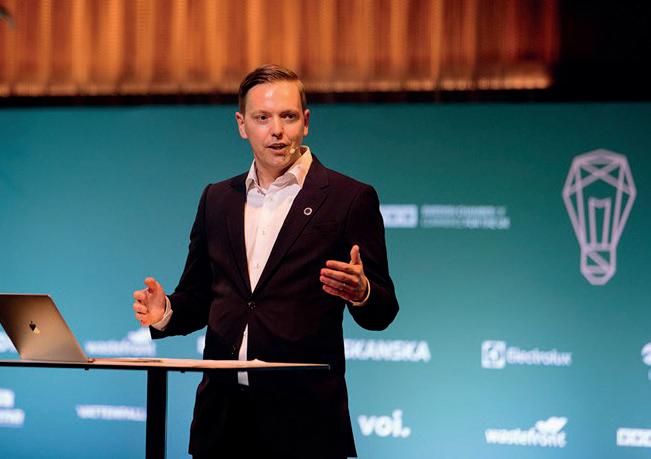
“Under Peter’s leadership, the Chamber has developed into a thriving business platform with more than 400 members – from tech startups and SMEs to large corporates – forming the most active and largest Swedish business community in the world outside of Sweden,“ says Jan Olsson, Chairman of the Swedish Chamber of Commerce for the UK. “On behalf of the Board, I would like to thank Peter for his great work, and wish him all the best in his future endeavours. He will be greatly missed.”
Peter Sandberg assumed the position as Chief Executive for the Swedish Chamber of Commerce for the UK in June 2018. He holds an MSc in Political Science and Economics from Lund University and has previously worked in press and communications roles at the Swedish Embassy and Chamber of Commerce in London respectively. He has worked at the Swedish-American Chamber of Commerce in New York City as Director of Program and VP, and when returning to London, he joined the British Private Equity & Venture Capital Association in his role as Director of Commercial Development & Membership.
As of 1 January 2023, Peter will be stepping down from his position as the SCC Chief Executive to pursue new opportunities, as he returns to Scandinavia. The SCC Board of Directors will be starting the process of recruiting for his successor. “The UK is one of Sweden’s most important trade partners, and Sweden is the UK’s 8th largest investor, between Canada and Ireland. There are more than 1,000 Swedish businesses in the UK, creating over 100,000 job opportunities. The Chamber is a strong stakeholder in both enabling and creating business across borders. Now, as the recruitment of Peter’s successor starts, we will be looking for the right candidate to continue pushing our position forward,” says Jan.
Peter Sandberg steps down as Chief Executive for the Swedish Chamber of Commerce for the UK
Peter Sandberg speaking at the SCC’s annual sustainability conference Impact 2022.
24 LINK IN OTHER NEWS
Swedish-British Reception & Dinner

22 August
On 22 August, the SCC hosted the annual Swedish-British Reception & Dinner in Stockholm, gathering business leaders, policymakers, media and other stakeholders to network and celebrate friendship across our borders. The evening commenced with a reception at the British Ambassador’s residence, followed by a dinner at Fotografiska.


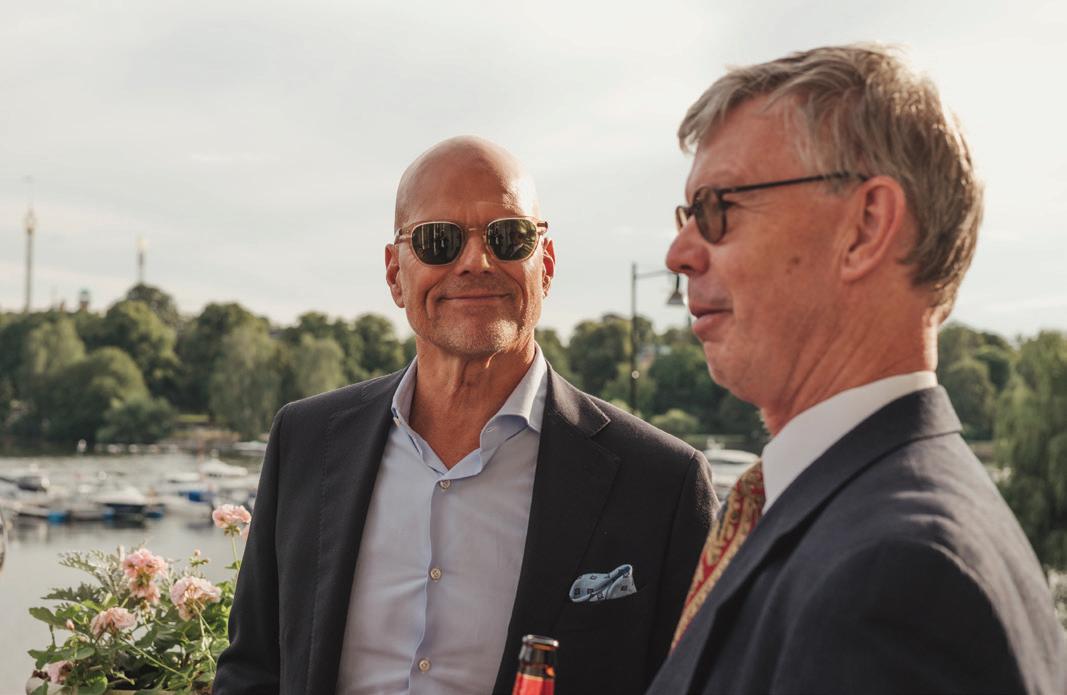
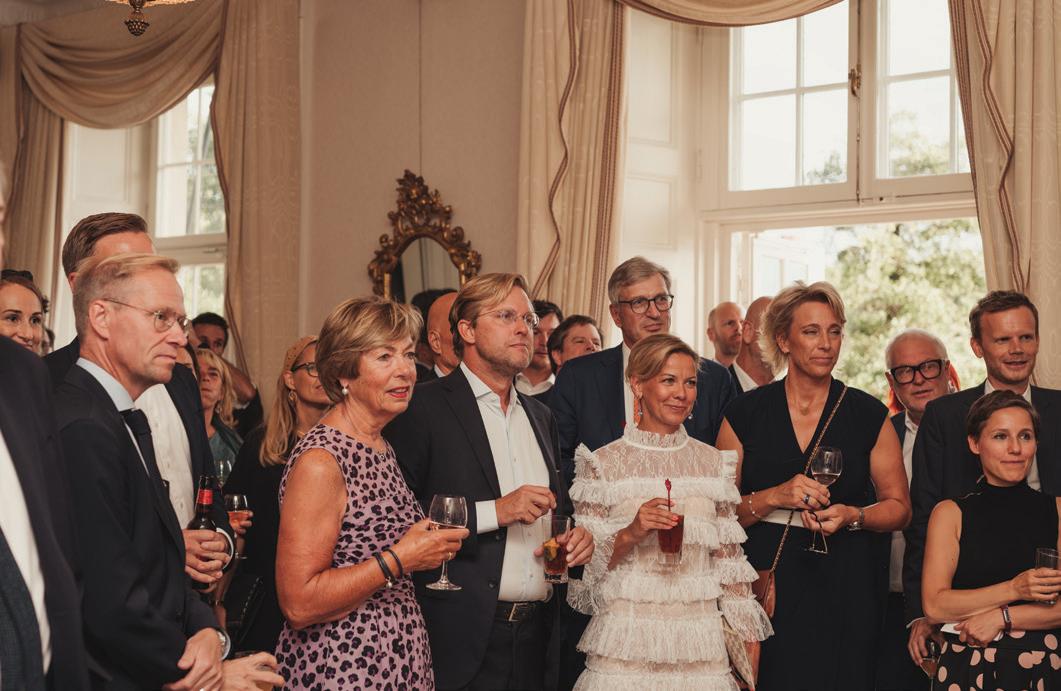

 After the reception the guests gathered for a three-course dinner at Fotografiska.
Johan Nord (Trustly) and Peter Jelkeby (IKEA UK).
Björn Savén (IK Investment Partners), Jan Olsson (Deutsche Bank) and H.E. Judih Gough (Brit ish Ambassador to Sweden).
The guests were invited for a reception at the British Ambassador’s residence in Stockholm. Eirik Winter (BNP Paribas) and Svante Adde (Goodwille).
Tobias Åkermark (Barclays), Micael Johansson (Saab), Viveka Hirdman-Ryrberg (Investor) and Gun Nilsson (Melker Schörling).
Hanna Grahn (Spotify), Dominic Fernandez-Ares (Stena UK) and Johan Nord (Trustly).
After the reception the guests gathered for a three-course dinner at Fotografiska.
Johan Nord (Trustly) and Peter Jelkeby (IKEA UK).
Björn Savén (IK Investment Partners), Jan Olsson (Deutsche Bank) and H.E. Judih Gough (Brit ish Ambassador to Sweden).
The guests were invited for a reception at the British Ambassador’s residence in Stockholm. Eirik Winter (BNP Paribas) and Svante Adde (Goodwille).
Tobias Åkermark (Barclays), Micael Johansson (Saab), Viveka Hirdman-Ryrberg (Investor) and Gun Nilsson (Melker Schörling).
Hanna Grahn (Spotify), Dominic Fernandez-Ares (Stena UK) and Johan Nord (Trustly).
25 LINK PREVIOUS EVENTS
ALUMNI RECEPTION
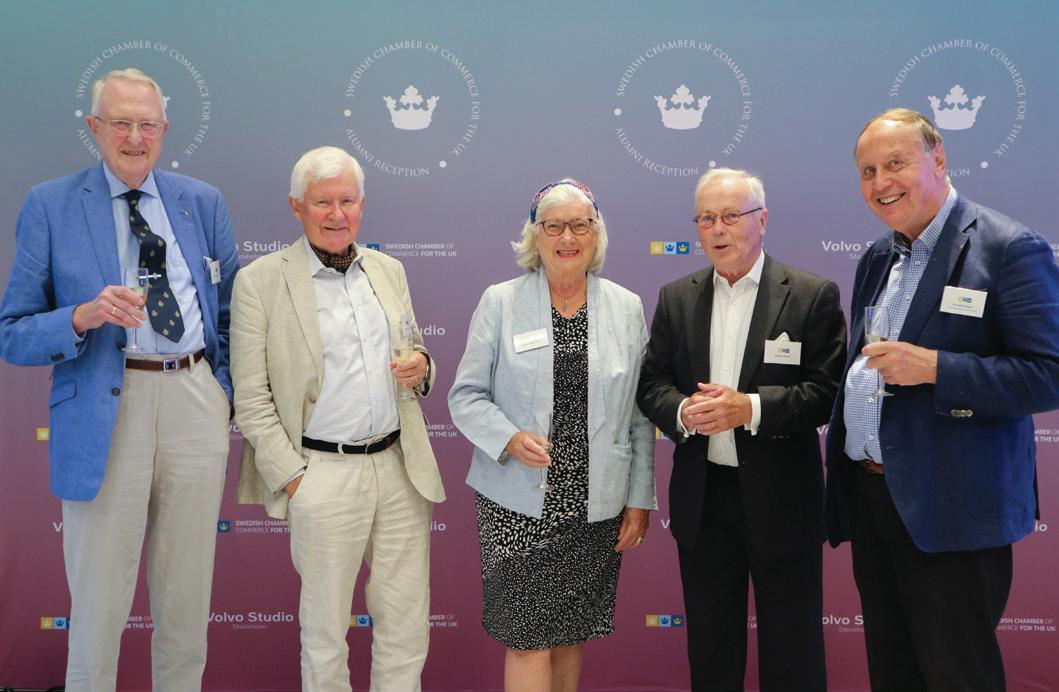
23 AUGUST
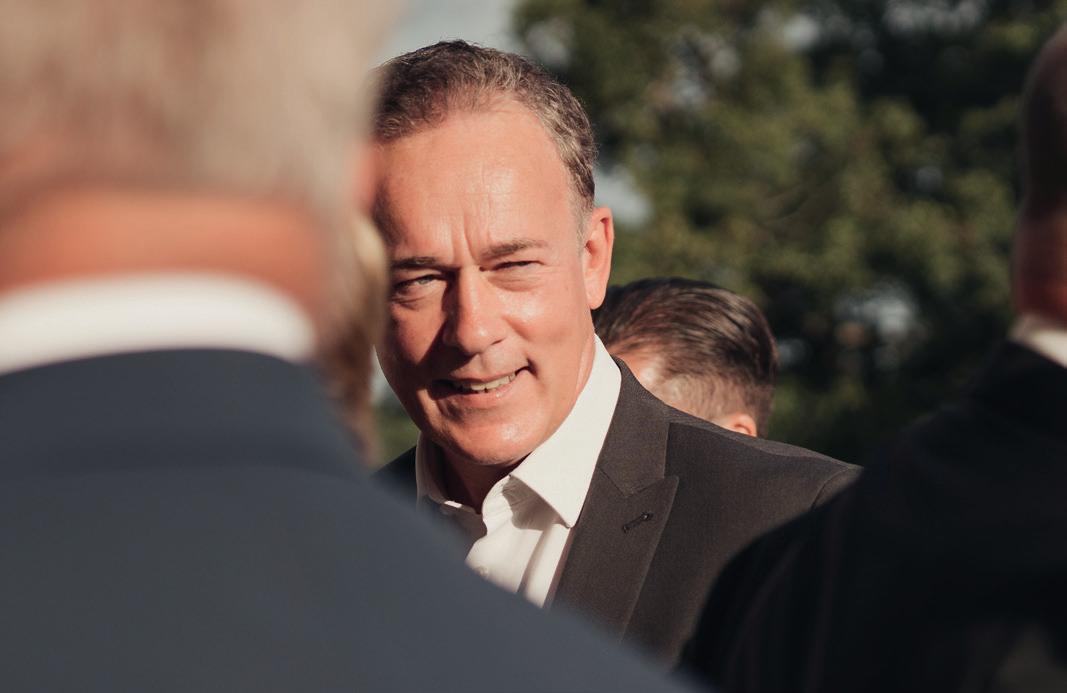
On 23 August, generations of SCC team members reunited at Volvo Studio in Stockholm, to share an evening of laughs and memories. Some 75 people joined the event, where scholars, interns and coworkers got the chance to connect with alumni from as far back as the 60’s, and see that the Chamber community was as warm and passionate back then as we are today.


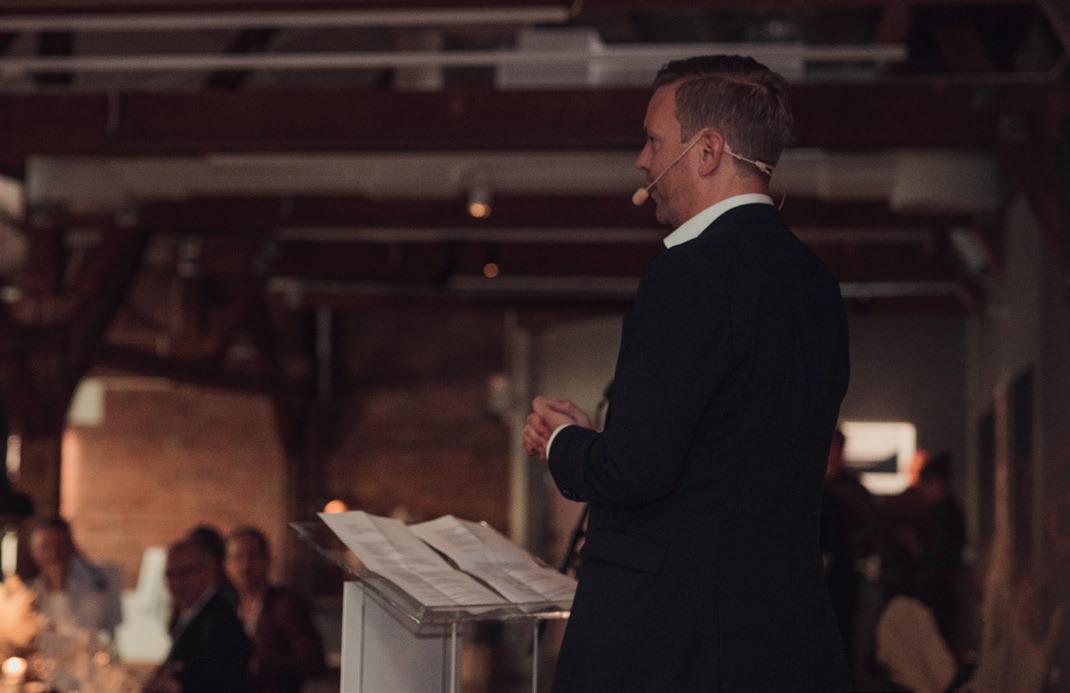
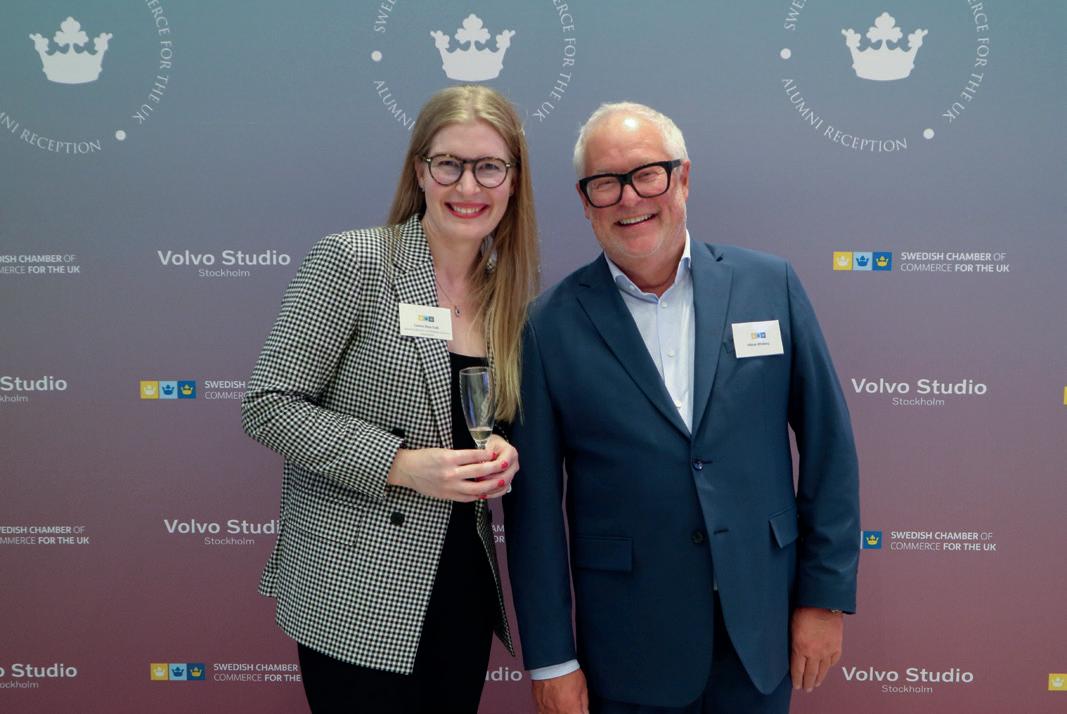
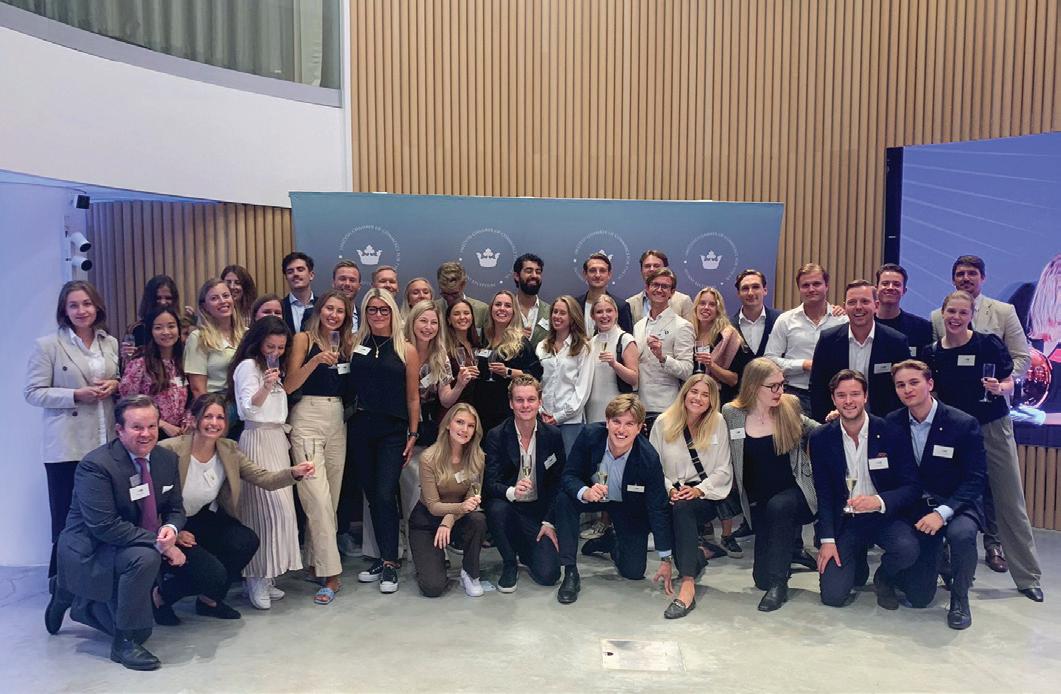 The event gathered SCC team members from all generations.
The evening reunited a great number of previous SCC team members.
Carina Dios Falk (Swedish Security and Defence Industry Association) and Håkan Winberg (previous scholarship donor).
Todd Green (King), Karin Ehnbom Palmquist (Swedes Worldwide), Christer Gruvris (AstraZen eca), Henrik von Sydow (Carnegie Investment Bank) and Magdalena Gerger (BSCC).
Peter Sandberg (SCC) welcoming the guests to the dinner.
Micael Johansson (Saab) and Jan Olsson (Deutsche Bank).
Darren Wilson (LKAB Minerals).
The event gathered SCC team members from all generations.
The evening reunited a great number of previous SCC team members.
Carina Dios Falk (Swedish Security and Defence Industry Association) and Håkan Winberg (previous scholarship donor).
Todd Green (King), Karin Ehnbom Palmquist (Swedes Worldwide), Christer Gruvris (AstraZen eca), Henrik von Sydow (Carnegie Investment Bank) and Magdalena Gerger (BSCC).
Peter Sandberg (SCC) welcoming the guests to the dinner.
Micael Johansson (Saab) and Jan Olsson (Deutsche Bank).
Darren Wilson (LKAB Minerals).
26 LINK PREVIOUS EVENTS
It takes a village to raise a child
...but it’s going to take much more to ensure that child has a sustainable future. We need the great thinkers, innovators, policymakers and naysayers to come together, create solutions and drive change. That’s why we’re working with the Swedish Chamber of Commerce to share Scandinavian insights with the UK market.

www.skanska.co.uk
Strategic Sustainability Partner Swedish Chamber of Commerce for the UK
YOUNG PROFESSIONALS AFTER WORK
17 AUGUST
On 17 August, the Young Professionals of the SCC organised an After Work at The Harcourt in Marylebone. Among the crowd, both familiar new faces were spotted connecting over drinks.

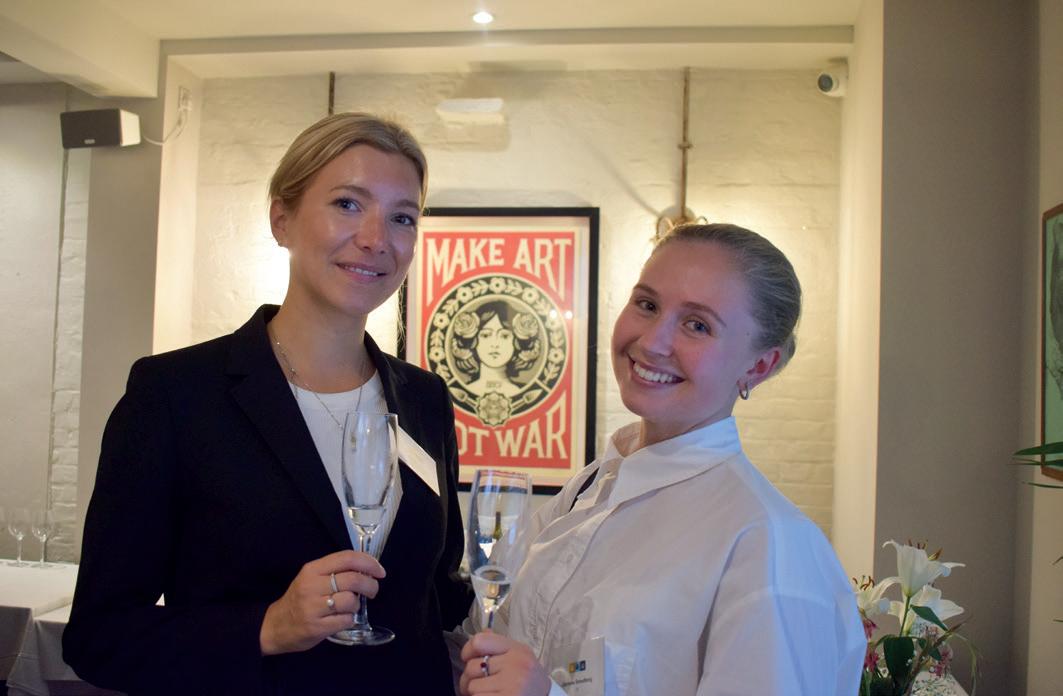

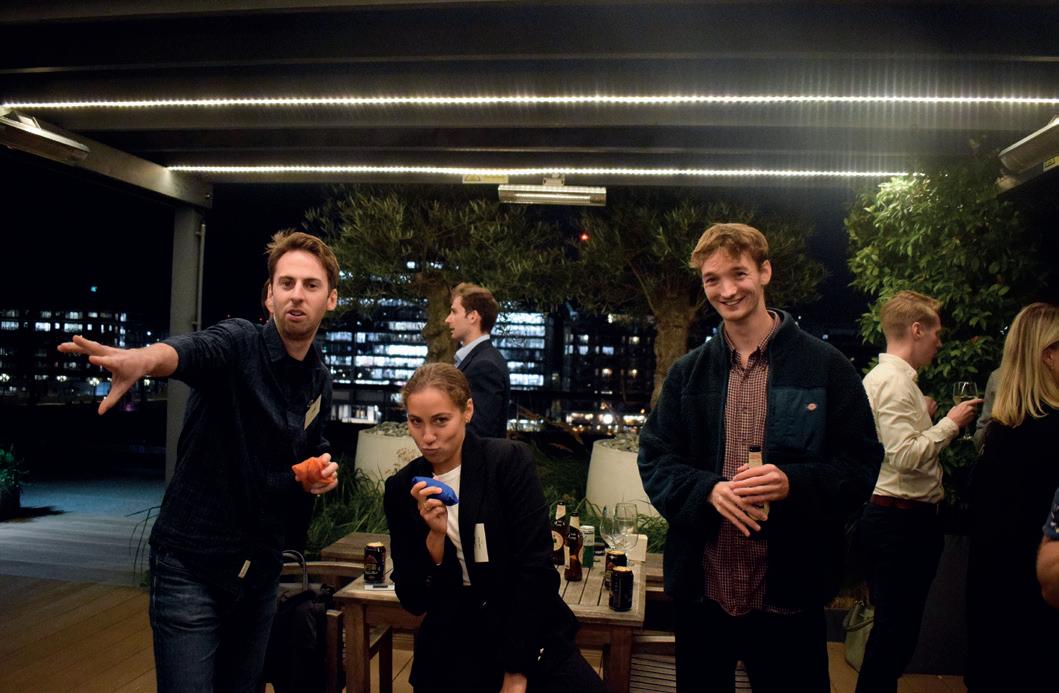
YOUNG PROFESSIONALS CARNIVAL NIGHT
7 SEPTEMBER
On 7 September, the Young Professionals of the SCC and AlphaSights organised a carnival-themed social gathering. With a stunning view overlooking the Thames, the evening offered candy floss, drinks and several rounds of can knock-down.
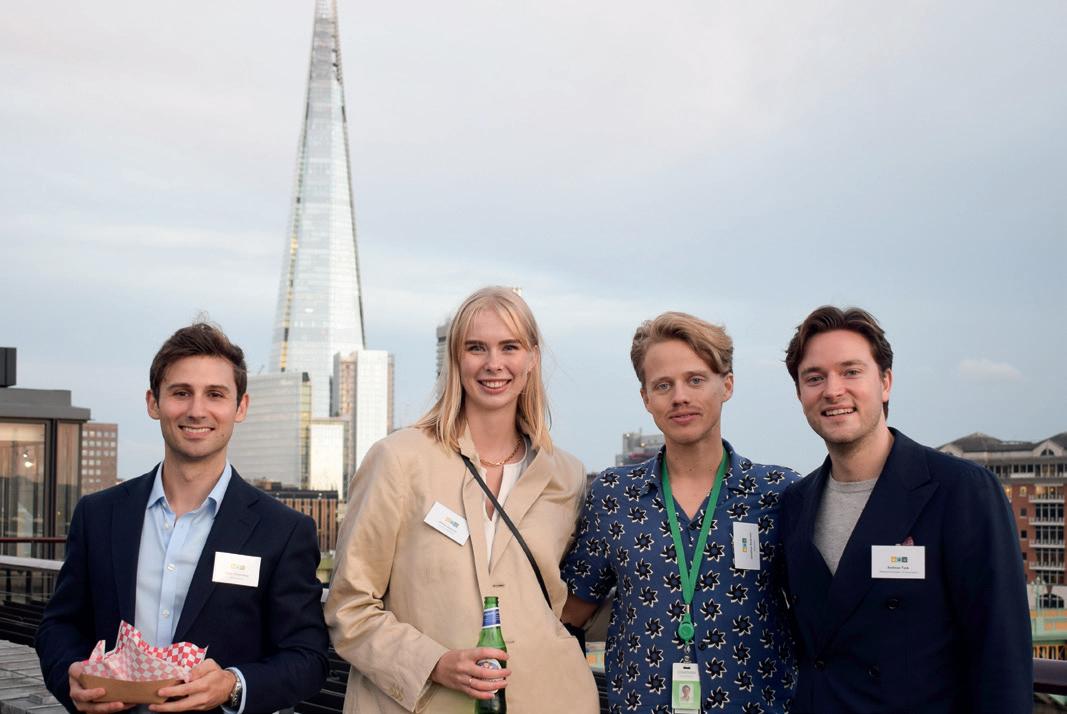
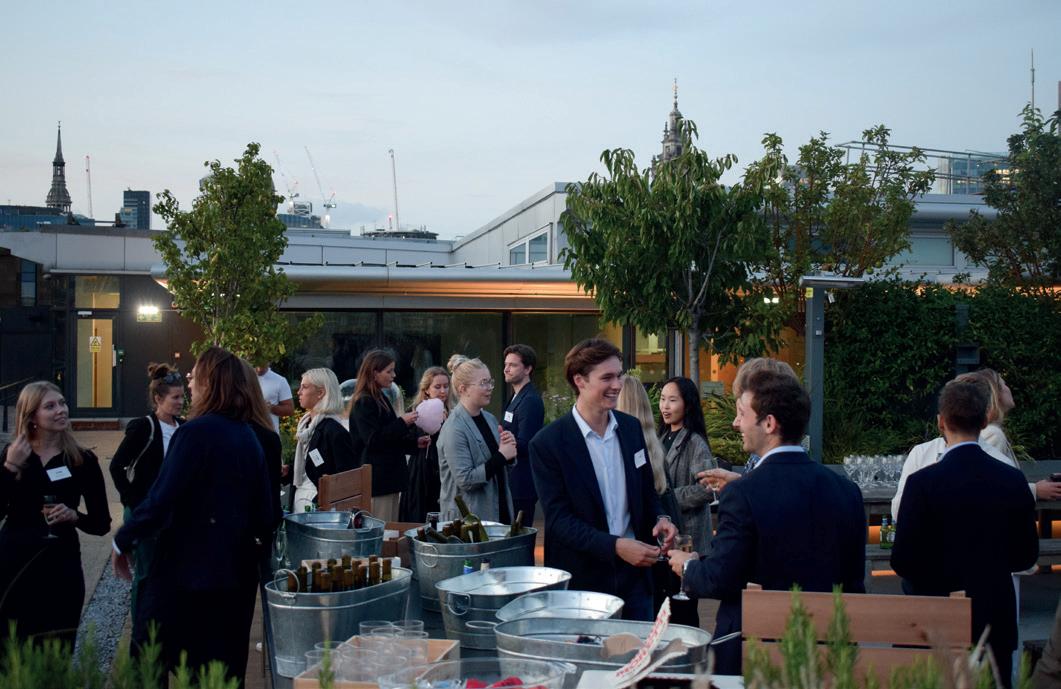 John Leverton (Leverton & Sons), Celia Gaier (UCL) and Oliver Daffern (Alva Labs) playing a round of can knock-down.
The evening offered a lot of new connections.
Victor Hedenberg (AMBA & BGA), Sonia Jönsson (Lund University), Jonathan Pedersen (Sales force) and Andreas Tysk (SCC).
Axel Paulsson (SCC), Marcus Moreen (Hampshire Trust Bank), Emelie Farquharson (SCC), and David Molin (SCC).
Josefin Larsson (Handelsbanken UK) and Corinne Smedberg (EF).
A lot of familiar, as well as new, faces among the crowd.
John Leverton (Leverton & Sons), Celia Gaier (UCL) and Oliver Daffern (Alva Labs) playing a round of can knock-down.
The evening offered a lot of new connections.
Victor Hedenberg (AMBA & BGA), Sonia Jönsson (Lund University), Jonathan Pedersen (Sales force) and Andreas Tysk (SCC).
Axel Paulsson (SCC), Marcus Moreen (Hampshire Trust Bank), Emelie Farquharson (SCC), and David Molin (SCC).
Josefin Larsson (Handelsbanken UK) and Corinne Smedberg (EF).
A lot of familiar, as well as new, faces among the crowd.
28 LINK PREVIOUS EVENTS
Upcoming events
The SCC is one of the most active foreign Chambers in the UK, offering a mix of virtual and in-person roundtables, forums and summits.
Learn more and see more events at scc.org.uk/events.
Nordic Private Equity Forum 2022

20 October | TBC, London
Join us at the Nordic Private Equity Forum which brings together stakeholders from the Nordic and UK-based asset management communities, from fund managers to banks, in stitutional investors and advisory firms, making it a great platform to connect with the Nordic PE ecosystem.
Swedish-British Summit 2022: Outer Thinking

1 December | Nobu Hotel London
At the Swedish-British Summit 2022 we look at our joint future ahead, the challenges, and how we can learn from each other. “Outer Thinking” is about 21st century leadership, bringing together business leaders, entrepre neurs, politicians and academics from both Sweden and the United Kingdom, to address the greater trends facing us, from tech to climate change, the future workforce or global trade. Stay tuned for more details on the 2022 edition of the Swedish-British Summit.
Boosting Creativity: Tech Forum 2022


21 September | Drapers’ Hall, London
Leading in technology today means taking a visionary lead. Technological development is the architecture of the future, and requires a human-centric approach to fuel creativity, innovation, entrepreneurship and dreams. Join us for the Boosting creativity: Tech Forum 2022, and get inspired by leading innovators and creatives in their fields, hear how they propel their teams to succeed in a competitive landscape, and download their ideas on the latest innovation trends and the next big thing in tech from their perspectives.
Young Professionals: Business Insights with Scandinavian Airlines

27 October | Sweden House, London
Welcome to an evening with Scandinavian Airlines, SAS. In a post-pandemic world, many are eager to start travelling again, to explore new parts of the world, and immerse them selves into different cultures. In the middle of all excitement, the most important question remains – how do we travel without harming the environment?
Annual Christmas Luncheon 2022

2 December | The Landmark, London
The Swedish Chamber’s Christmas Luncheon has a long history dating back over a century. Today, it is the pinnacle of the business calen dar, bringing together business people from across the Swedish-British community and is the largest luncheon of its kind outside of Sweden. The Luncheon will feature a tradi tional Lucia procession, a grand charity raffle, first-class entertainment, great company, and unique networking opportunities. To make it even better, the Luncheon is followed by an after-party that will keep the festivities going.
Ecosystem Exchange: Createch
21-22 September | Freeths, 1 Vine St, London
The SCC is inviting the most innovative creative tech and games businesses from Sweden to join two half-day sessions. The compa nies will get the opportunity to take part of masterclasses, get key insights in the British market, the different clusters and connect with investors, publishers and British small-medium sized game studios interested in the potential in Sweden and/or collaborating and partnering with Swedish companies, preparing them for their expansion to the UK.
Executive Forum & Dinner
3 November | The Swedish Ambassador’s Residence
The Executive Forum & Dinner at The Swedish Ambassador’s Residence is one of the Cham ber’s most exclusive events series, dating back to the 1990s. The purpose of the Forum is to gather senior business leaders from within the network to create new bonds and synergies.

29
LINK UPCOMING EVENTS









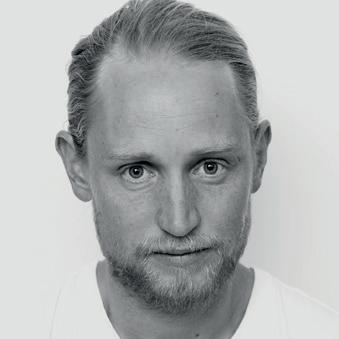
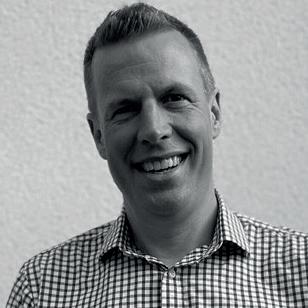



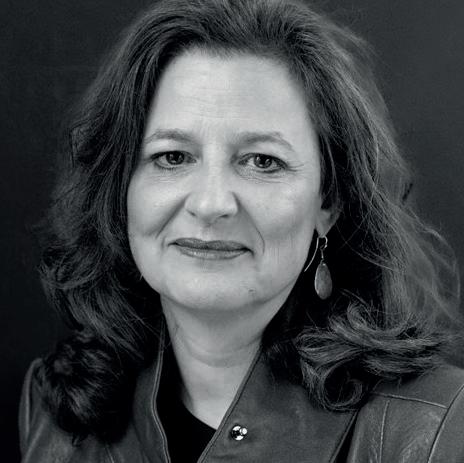
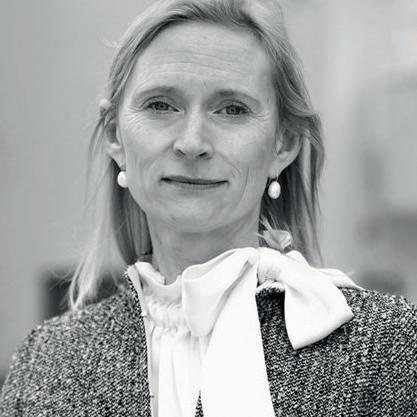
 GREG
THEO BLACKWELL
FREDRIK
FELIX
JOHN VARY
CAROLINE
GREG
THEO BLACKWELL
FREDRIK
FELIX
JOHN VARY
CAROLINE
Leading in technology today means taking a visionary lead. Technological development is the architecture of the future, and requires a human-centric approach to fuel creativity, innovation, entrepreneurship and dreams. Join us for the Tech Forum 2022: Boosting creativity, and get inspired by leading innovators and creatives in their fields, hear how they propel their teams to succeed in a competitive landscape, and download their ideas on the latest innovation trends and the next big thing in tech from their perspectives. 21 September | Draper’s Hall, London SPONSORED BY STRATEGIC SUSTAINABILITY PARTNER 2022 20+ SPEAKERS INCLUDING Sign up at scc.org.uk
PIDCOCK Music Director sketch Parlour
Chief Digital Officer Mayor of London’s Office
RUNDQVIST CEO, Sharkmob IDA HANSSON BRUSEWITZ Editor Di Digital Dagens industri
RICHTER Chief Creative Officer, Mother, and Master of Ceremonies BARRY SMITH CIO, Skanska UK BEN ROTH Online Business Director, Volvo Car UK MAGDA LUKASZEWICZ Principal Balderton Capital
Futurologist, John Lewis Partnership
NORBURY OBE CEO, Creative UK LOUISE DYRENDAHL Partner, EY DR JO TWIST OBE CEO, UKIE
IN OTHER NEWS
Got news for us?
Email jonas.eklund@scc.org.uk.
New updates on UK customs import and export procedures
As of 31 March 2023, the HMRC Customs Handling of Import and Export Freight (CHIEF) system is being replaced by the Customs Declaration Service (CDS). Both systems are currently running parallelly, but from 30 September 2022 the HMRC will phase out CHIEF in two stages, starting with imports, following with exports on 31 March 2023. From that point onwards, CDS will be the new UK single customs platform. Businesses who make their own customs declarations will have to register to use the CDS as soon as possible to ensure they are ready to use the system before the CHIEF system closes.
Tesco starts selling Löfbergs coffee
SCC member Löfbergs coffee is expanding its UK presence, as market leading grocery retailer Tesco starts selling its products. “The UK is a large and important market, where coffee consumption is increasing, making this deal especially important to us and our continuous growth,” says Anders Fredriksson, CEO at Löfbergs.

King acquires Peltarion

Entertainment company, and SCC patron, King has announced the acquisition of AI software business Peltarion. Peltarion is a Stockholm-based AI innovator specialising in the development of a machine learning operations platform and helping users to design and manage deep learning models. The acquisition will strengthen the integration of AI and machine learning technology, making King’s game platforms even more creative than before, according to Tjodolf Sommestad, President of King.
Michel Demaré to succeed Leif Johansson as NonExecutive Chair of the AstraZeneca Board
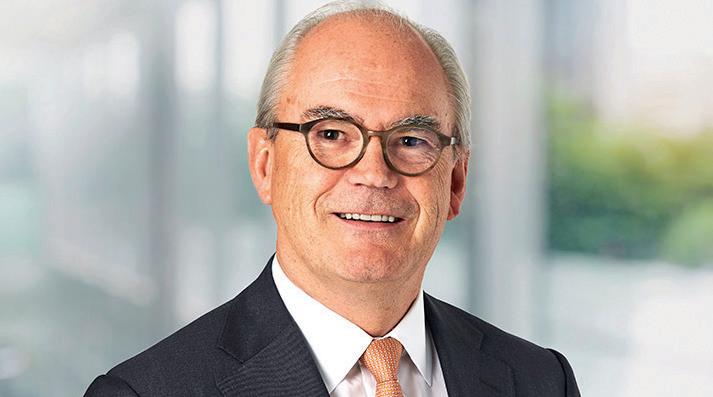
On 29 July, AstraZeneca announced that Michel Demaré is appointed the Chairdesignate of the Board. Leif Johansson, current Chair of the Board, will be retiring in April 2023 and Michel’s appointment will take effect immediately following this. “I could not be prouder to be named Chair-designate of the Board of AstraZeneca and am excited to have the opportunity to build on Leif’s success as Chair,” said Michel Demaré in a press release.
Sweden created 1,716 new jobs in the UK last year
Expat Swedes’ wish-list for voting from abroad
According to a survey made by organisation Swedes Worldwide, e-voting, extended opening hours and more information are on the wish list for expat Swedes voting from abroad. The survey included respondents from 106 different countries, who witnessed of difficulties voting in the Swedish general elections, due to limited opening hours and far distances to the nearest polling station. Approximately 700,000 Swedes live abroad, an estimated 100,000 of those in the UK, and, globally, at least 175,000 expat Swedes are eligible to vote in the general elections. However, voter turnout has been low historically, with less than 40% turnout in the 2018 elections.

According to a new report looking at Foreign Direct Investment in the UK, Sweden creat ed a total of 54 projects and 1,716 new jobs in the UK last year. This can be compared to the commonwealth country Australia, creating a total of 43 projects and 913 jobs, or with Switzerland, creating 38 projects and 1,236 new jobs, in the same period. The report is published by the Department for International Trade and measures inward investment results in the UK 2021-2022. Sweden is the UK’s 8th largest investor, be tween Canada and Ireland, with over 1,000 Swedish businesses operating in the UK and the top 10 Swedish employer accounting for over 55,000 jobs nationally.
UK government increases UKCA support
The UK government has announced it’s taking further measures to increase the support for businesses adopting to the new UKCA marking. This includes reduced costs for re-testing and certifications, as well as clarifications around the testing process. As a result of Brexit, all products sold in the UK currently subject to CE marking will be required to adapt to the new UKCA marking by 1 January 2023. The UK Department for International Trade offers additional guidance, as well as a series of webinars covering the changes.
31 LINK IN OTHER NEWS
The shoes making a big style statement, but leaving a small CO² footprint
As we are shifting towards a more sustainable society and conscious consumption patterns, retailers are having to revise their strategies and the way they design their products. Features such as longevity and versatility are becoming more important than low prices and trendiness, and brands who manage to seize this are becoming more relevant by the day. The Link spoke to Christofer and Louice Jonsson, founders of SCC member MIYO Signature Shoes, about how they are re-thinking retail and helping their customers to decrease consumption – without decreasing creativity.
 BY: SAGA PALMÉR
BY: SAGA PALMÉR
“We wanted to create something that can be both timeless and trendy at the same time. The initial idea was brought out from a slower fashion-approach, where quality meets functionality, resulting in pieces you actually need and who are therefore less likely to be forgotten in your wardrobe.” says Christofer.
At first glance, the MIYO loafers and ballet flats look like classic, quite neutral shoes. But they have one special feature that is making them stand out – the unique clasps located on the top of the shoes. The wearer can buy various of interchangeable unisex adornments, and change between them to customise the shoes in accordance with personal style, occasion and seasonal trends. In other words, you could get multiple looks out of the same pair of shoes.
From Småland to Stockholm Founded and developed in Swedish Småland during the pandemic, MIYO is very much a child of its time. Christofer and Louice say that the concept of versatile, timeless shoes sprung out of a dilemma common among modern professionals – wanting to decrease consumption, but still having to adjust their outfits to various occasions. “Being two professionals living and working in Stockholm, we identified our own need for smart, sustainable shoes – something we felt was missing on the market. Instead of buying multiple shoes to suit the office attire, as well as our personal styles, we felt a need for high-quality classic shoes, where a modern twist could be added, so that it would suit most occasions.”
Increasing demands lead to higher standards
Christofer and Louice aren’t the only ones wishing to consume in a sustainable way, without having to sacrifice creativity or personal style. Today, 72% of consumers say that sustainability is an important factor when making a purchase, and 68% of consumers say they are willing to pay more for sustainable products. And these figures are having a clear impact on brands and business owners – in fact, close to 100% of all senior retail executives who participated in a recent study by First Insight, said that consumers expect them to operate in a more sustain able way today.
Christofer agrees with the findings, saying that customers today are having more power over things such as production methods than before. “The modern consumer is more educated, more aware, and more concerned by the ethics behind their purchases. By putting more pressure on brands and businesses to operate in an ethical way, they
also have more impact on the production than ever, and the borders between producers and consumers are increasingly blurred out.”
This means that brands need to pay more attention to their custom ers’ demands, if they want to increase the likelihood of keeping them. Nowadays, products should not only meet the likes of the customers when it comes to quality and looks, but also when looking at the whole chain of production.
“Businesses need to focus on transparency, making conscious deci sions and being in control of the whole supply chain. Starting with the material and the craftmanship, going all the way to the warehouse and packaging, it all needs to be taken into consideration. This is indeed very time-consuming, especially when you first get started, but in the end, it is very rewarding, and you feel more in touch with your product.”
Longer lifespan of products and climate
Multiple studies made on the relationship between climate change and consumption show that extending product life could be the single most effective measure to reduce the CO2 footprint. By encouraging and educating their customers in shoe care, Christofer and Louice hope to increase the lifespan of their products. For example, they offer advice and guidance in maintaining leather and suede, as well as how to best maintain the quality of the clasps. They hope that their customers will build a relationship with the shoes, strong enough to make them want to take care of them.
“When you invest yourself in the purchases that you make, you also gain an interest of how to sustain the product and make it last for a longer period of time. We want to be proactive and educate our custom ers in things such as shoe maintenance, and show them the correct ways of brushing them, polishing the leather, cleaning them and so on.”
They believe that the interest in maintenance and product care will continue to grow among consumers, as they get more educated and more invested in their purchases. Looking at the future of retail from a brand perspective, they believe producers will continue to experiment with new types of climate friendly materials and production technolo gies, such as 3D printing and plant-based textiles. “We all have to do what we can to contribute to the green transition. No matter how small the steps we are taking might seem right now, they are at least taking us in the direction towards a greener future, and improve the way we all consume tomorrow.“
Founders Louice and Christofer Jonsson aim to decrease consumption, without having to compromise personal style. Photo: MIYO.
32
LINK feature

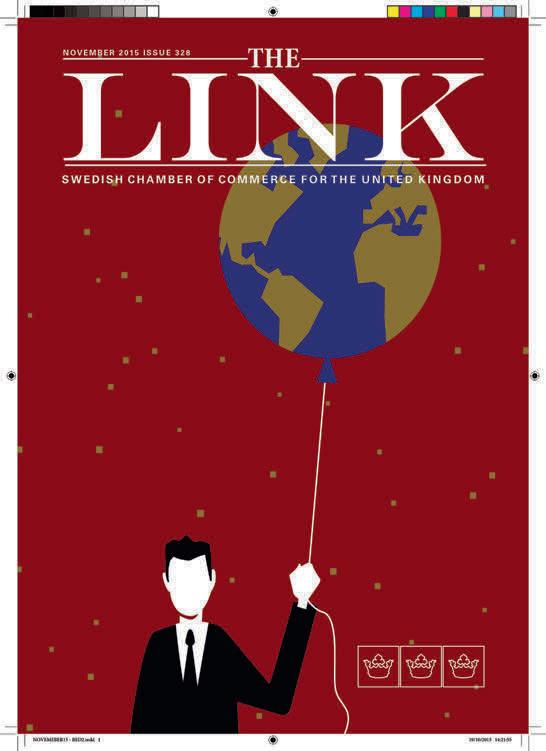






























































































































































































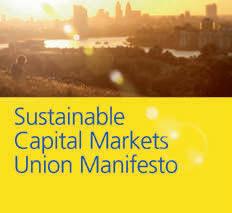




































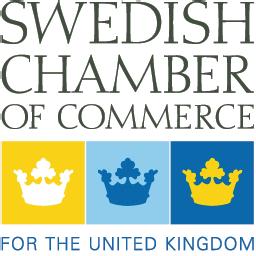











































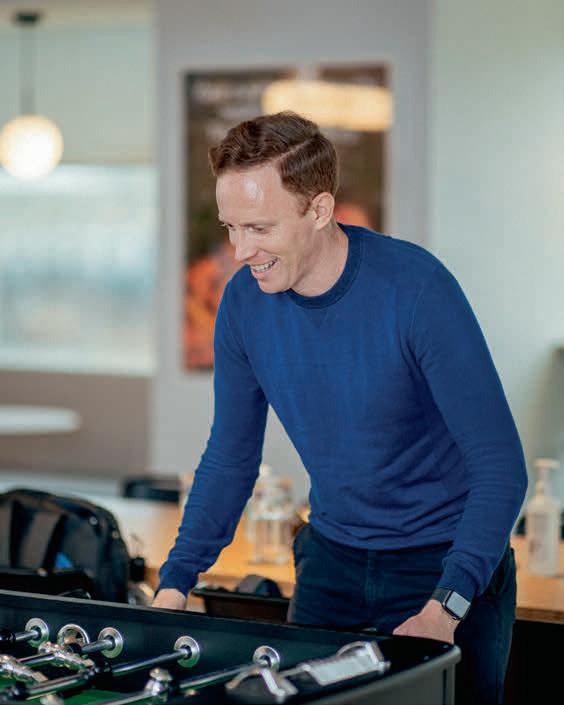
» The SCC use Rival for printing services –in fact you’re looking at our printing NOW! Print in Good company! CONNECT WITH THE NDUSTRY AT Issue 14 November 2013 Souvenir Edition summary of the deb es held the House of Commons by the UK Youth Parliament, 15th November 2013 Debatable “Democracy is such a beautiful thing –want a piece of that” IF YOU CAN PRINT ON IT...WE CAN PRINT IT! www.rivalcolour.com Christmas Fair 17, 19 & 20 Nov Är du intresserad av att vara med? Scanna koden eller maila till: communications@swedishchurch.com Svenska kyrkans julmarknad i London är ett återkommande event, så även i år, med försäljning av julsaker och delikatesser, café, musikframträdande och julstämning. För detta behöver vi volontärer. LINK Dedicated to the Swedish-British business community since 1906 saab, sweden and the security situation Micael Johansson’s thoughts on NATO, defence and the turbulance in Europe. driving trucks in a sustainable direction How Scania is leading the way as the industry turns greener. Describing himself as a typical middle-child, there are few other things that are typical when it comes to Alex Marsh, Head of Klarna UK No.362 “Growing up with two brothers has made me very competitive and very driven.” IN MEMORIAM H.M. QUEEN ELIZABETH II Paying tribute to the longest serving monarch in British history.
Why is a communications school venturing into the field of urban design?
The reaction was immediate. “How exciting, it feels like a completely relevant initiative”, “Tell us why you are entering this area?”, “Interesting, tell me more!” And when you think about it, it’s an obvious move for a school like Berghs to expand into urban design.
BY: CAMILLA WALLANDER, CEO OF BERGHS SCHOOL OF COMMUNICATION
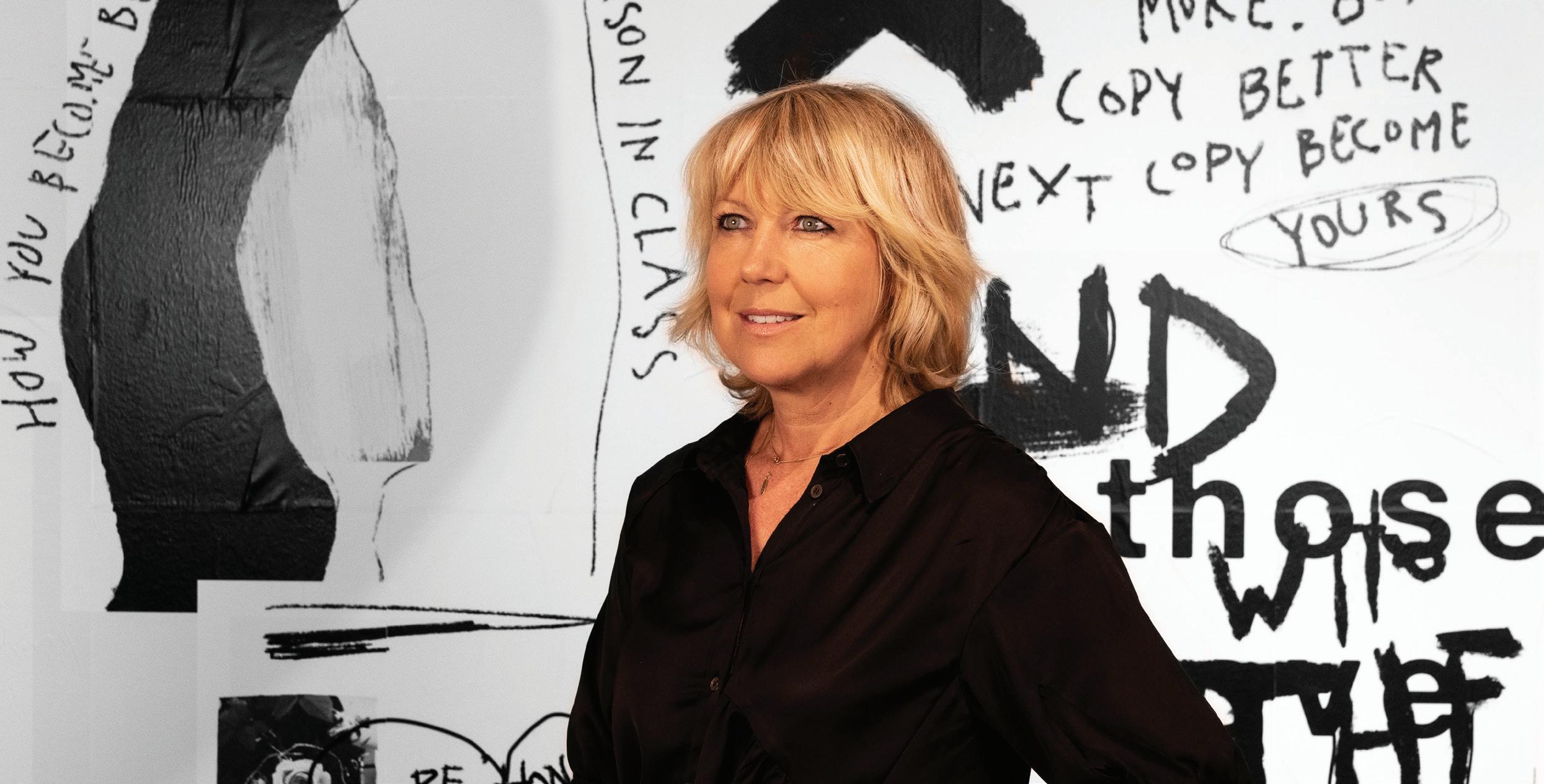
Over the past year, Berghs School of Com munication has explored countless fields and industries that have a need for new compe tence and new ways of working. One of these areas is urban design and planning. Why? It’s my conviction that successful spaces are built collaboratively. They share a clear vision that is activated and continuously developed, and consider more perspectives when designing and shaping our cities and communities.
Communication and cooperation are in creasingly central to developing good social planning. Our starting point is human-centred design, and we’ve identified that communica tion, inclusion and visualisation are incredibly important topics. For example, if you start a complex dialogue, you’ll often get a lot of people who are resistant to change. If people can’t see or understand the vision, they just see inconvenience and pain. And they undervalue the long-term benefits. A new way of thinking is a bottom-up approach, a more democratic dialogue with a spectrum of people instead of just narrow specialists.
This approach to rapid developments, chang ing behaviours, and a need for a new curious mindset has been affirmed with architects, urban planners, communication profession als, property owners, and leaders in real estate. There’s also a desire to consider more stakeholders and their interests earlier in the design and planning processes. The interest
among both students and professionals in being involved in a city’s development has increased and sustainability has become a pri mary driver of change and of new demands.
I believe there is a need for several actors who is future-oriented, curious, and who thinks about collaboration instead of silos. We need to highlight new perspectives and acti vate networks. It is important looking ahead and update and develop the right competen cies based on industry needs.
A meeting place, a neighbourhood, a city centre, doesn’t just thrive by itself. People must come together to create and develop something meaningful together. There’s a need for a curious mindset coupled with the ability to listen and a willingness to under stand. We need to work collaboratively across disciplines in a new way.
When you enter a new area, you need good advisors. For example, Berghs loves Advisory Boards, where people with various perspec tives gather and give space for conversations and co-creation. By establishing an external advisory board to understand today’s chal lenges and opportunities in the area of urban design and planning, we learned that our fu ture societies need people with knowledge in innovation management, mobility, and socially sustainable cities. Consequentially, Berghs is bringing in course leaders who are experts
in those areas, to develop courses aimed at people working in civil engineering and are intended as further education or a deep dive in a particular area. For us, the journey starts in the classroom (or digital space) – a journey that encourages different perspectives and real challenges. Now!
Last spring, we moved to Gasverket in Norra Djurgårdsstaden, a new area in Stockholm with a distinct sustainability profile. When completed, Norra Djurgårdsstaden will have 12,000 new homes and 35,000 new jobs, making it one of Europe’s most extensive urban development areas. In May, the Berghs festival was held with the theme of “Future Spaces”. To get a more dynamic and innova tive environment in the local area, everyone needs to contribute. Our contribution is con versations, meetings, and inspiration!
ABOUT CAMILLA WALLANDER
Camilla is CEO of Berghs School of Com munication, a forward-thinking international awarded school of higher education. Berghs is a hub within communication, innovation and strategy with focus on integration, col laboration and leading change. Camilla is an experienced Marketing Director, combining knowledge from several industries such as retail, transport, real estate and education.
Camilla Wallander, CEO of Berghs School of Communication. Photo: Emil Randulv.
34 LINK GUEST COLUMN
NEW members
The Swedish Chamber of Commerce for the UK is the ultimate business platform for Swedish and UK businesses, representing some 400 companies from across all sectors and industries, and from start-ups, SMEs, unicorns to large corporations. Membership comes with a suite of benefits for you, your colleagues and your business. But first, a warm welcome to our newest members.
BCCS CLUSTER
BCCS Cluster is home to 17 organizations, from Lithuania, Ukraine, and Sweden – working on a global level with technology companies to provide a holistic approach of services and solutions in one place. By sharing the same passion and conviction, its experts across Web3, Software Development, Cybersecurity, Legal, and Compliance blend together seamlessly to turbocharge your venture.
Capman
CapMan is a leading Nordic private asset expert with an active approach to value creation. As one of the private equity pioneers in the Nordics, it has built value in unlisted businesses, real estate, and infrastructure for over three decades. With over €4.8 billion in assets under management, its objective is to provide attractive returns and innovative solutions to investors.
CLIFFORD CHANCE
Clifford Chance is one of the world’s pre-eminent law firms, with significant depth and range of resources across five continents. As a single, fully integrated, global partnership, the firm takes pride in the approachable, collegial, and team-based way of thinking.

BOARDCLIC
BoardClic is the market-leader within advanced digital Board and CEO evaluations, a library of best practice international formats as well as key data and benchmarks. The company’s proprietary technology, enjoyed by some 250+ customers across the world, is designed to help companies achieve top team excellence and alignment. BoardClic was founded in 2018 and has offices in Stockholm and London.
C8 TECHNOLOGIES

C8 Technologies offers a platform to professional investors, aiming to realise the performance of any institutional-grade investment style by directly trading the underlying assets. Uniquely, it also provides low-cost, broker-agnostic, direct access to various financial instruments, including active and passive, tradeable Indexes.
EPEROTO
Eperoto provides a powerful, yet easy-to-use, software to produce risk-value assessments of legal disputes using decision theory. Through its online tool, users can make informed decisions when handling the uncertainties of their disputes, easily communicate risks and values to their stakeholders and understand their disputes to the core.
35 LINK New Members
NEXER INSIGHT
The purpose of Nexer Insight is to drive the revolution forward. It can help businesses achieve a competitive edge through connecting their assets with IoT, predictive modelling and analysis, machine learning, algorithms, AI, data science, data engineering, and visualization. The company goes beyond traditional business intelligence methods to help businesses become data driven.


STANDARD CHARTERED BANK
Standard Chartered Bank is a leading international banking group, with a presence in more than 60 of the world’s most dynamic markets. The company’s purpose is to drive commerce and prosperity through a unique diversity, and its heritage as well as values are expressed in the brand promise, here for good.

COMMERCIAL CLARITY
WHITECAP CONSULTING
Whitecap Consulting is a UK strategy consultancy company. It works with executives, boards, and investors of predominantly mid-sized organisations, typically with a turnover of £10m-£300m. The company aims to help businesses analyse, develop and implement growth strategies.
PARAGAIA
PARAGAIA is a company specialised in building and accelerating Marketplaces. The company provides solutions for B2B, B2C, as well as supporting customers in establishing and operating Marketplaces. It has also developed Marketpilot, which is a SaaS software platform with the aim of further accelerating business for Marketplace operators worldwide.

TALENT X
TalentX is a recruitment and people operations consulting company, specialised in start-up and scale-up recruitments. The company was founded by Raman, who was previously the Head of Talent of Sting and Norrsken, two leading accelerators of Sweden. As of today, TalentX works with 50+ fast-growing startups in the Nordics and it is expanding the services in London this autumn.
Interested in becoming a member?
If you would like to enquire about joining, please get in touch with Christoffer Waldemarsson, Membership and Community Manager, christoffer.waldemarsson@scc.org.uk.

36 LINK New Members
Alex marsh
Head of Klarna UK

Describing himself as a typical middle-child, there are few other things that are typical when it comes to Alex Marsh, Head of Klarna UK. Starting out as a chemistry student, he ended up leading the UK office of one of Europe’s highest-profile fintech businesses. But the road to get there has been all but straight, bringing him to different continents and into different fields along the way. In an interview with The Link, Alex shares his story and his thoughts on the future of fintech.
BY: SAGA PALMÉR
“I grew up in Brighton and I’m the second of three brothers. I have an older brother, Nick, and a younger brother, Greg. I’ve done lots of reading about siblings and psychology, and I always say that I’ve got all the typical traits of a middle-child.”
As the second son of a teacher and tech entrepreneur, Alex attributes a big part of his success to his family and upbringing. While getting his passion for technology and learn ing from his parents, he says being a middlechild truly sparked his ambition.
“Growing up with two brothers has made me very competitive and very driven. You know, middle-children often get less attention, so they do lots of things to try to get the attention and love of their parents. That was definitely my experience growing up,” Alex says and explains: “I always loved studying, but in reality, I was trying to stand out from my brothers, to be the one who did the best on exams or the one that was more suc cessful. And that’s always been a part of my motivation.”
Today, decades later, he is back in Brighton, living close to his family, with his wife and two children. But before returning to his hometown, Alex has been exploring several different businesses, fields and parts of the world.
The game changer
After the childhood years in Brighton, Alex went on to study chemistry at the University of Cambridge. Although he loves science and describes studying at Cambridge as a dream come true, he soon realised that it wasn’t at all what he had expected it to be.
“Growing up with two brothers has made me very competitive and very driven.”
Alex Marsh, Head of Klarna UK.
Photo: Renz Andres.
LINK Meet
37
“I thought that I’d be a chemist, a scientist, and I worked incredibly hard to achieve that. But during my third year at university, I discovered that I actually didn’t want to be a scientist – I love speaking to people, and I can be quite impatient, so I want things to be done quickly and make quick progress. Instead, I found myself doing long research projects, alone in a quiet environment, which was far from what I wanted.”
Having completed his third year of studies, Alex decided to graduate. After a summer internship at a London-based advisory com pany, he joined PwC and trained to be an ac countant – a decision that would completely change the course of his career, and even bring him to new parts of the world.
“I always find it fascinating to think about our lives as some sort of branch, and this deci sion was a real turning point. The time I had at PwC was incredible for meeting and working with different clients, in different industries and different sectors. I even got the chance to work and live in Australia for a year. Although for me, with my British genes, red hair and the heat, it wasn’t the right place to spend the rest of my life. Or it would have been a quite short life.”
From finance to fintech
Having returned to the somewhat cooler climate of the British islands, Alex joined the British bank Close Brothers, where he would spend 10 years working in different positions. He describes the organisation as traditional, built more on people and relationships than on technology. But despite this, it was the place where he would make the leap into the fintech industry.
“Close Brothers is a very traditional bank, more than 100 years old, working mainly to bring value to its customers through relation ships and human interaction. I was leading a strategy team looking at how to bring technol ogy into Close Brothers and into relationship banking, and we ended up creating a payment start-up called Close Brothers Retail Finance, which allowed consumers to spread the costs of their shopping.”
Close Brothers Retail Finance would later be bought by Klarna, bringing Alex along and onboard. But as the sales process began, the potential buyers were many, and the choice wasn’t easy. “I met with over 40 different potential buyers before deciding to sell to Klarna. Then Klarna said they wanted me to come across with the business, so I ended up joining the team in 2019. It was very strange for me – I’d been at Close Brothers for 10 years, I thought that’s where I’d spend much more of my career, and then suddenly, I found myself working for a Swedish fintech global disrupter.”
Although the change was unexpected, Alex says that he is happy with the choice he made, recognising the progress as quite as tonishing. “When I sold the business, we had about 200,000 customers and 800 retailers. Now I find myself running a business with
over 18 million UK consumers and 22,000 retailers. It’s been incredible to experience this in the space of only four years.”
Fintech and the future
With a presence in 45 countries and 150 million customers worldwide, Klarna is one of Europe’s highest profile fintech businesses of today. And according to Alex, the team has no plans of slowing down. Instead, they are working hard to bring Klarna into new markets, platforms, and sectors. “Right now, we put a lot of effort into expanding our global footprint, with the US market being a major priority. Having already gone into 45 differ ent countries at different times means that our product has reached different stages in each place. Take Sweden for example, where Klarna is a platform with an advanced inter face, user-friendly budgeting tools and its own bank card. Now we aim to make the Klarna experience equally good in all markets.”
trust and loyalty from people who’ve used Klarna, and they keep coming back.”
He believes that the consumer of the future will be more flexible towards switching between different financial service providers, rather than using one and the same for eve rything. Hence, fintech businesses offering multiple services will be the better equipped for the future.
With the fintech industry making warp-speed progress, one of its key challenges is to build and keep the confidence of the consumers. According to Alex, people tend to be inher ently suspicious of financial services, and even more so when not understanding their business models, or the technology behind them. But by being consistent and transpar ent, he is certain that the gap can be bridged, and that traditional banks will have to keep up with more modern solutions if they want to stay relevant.
“What we found at Klarna while getting es tablished in the UK, is that there is some sort of consumer suspicion towards the sector in general. Since then, we have put a lot of effort into building trust, through people using the products and realising it’s the better option out there. Now we find that there’s incredible

“Traditionally, you would have one main bank account and use the financial services of that same bank. Tomorrow will be completely different, as consumers understand that they can get their loans or mortgages from the place offering the best interest rates, then use another platform to exchange or transfer money, and a third one for their Buy Now Pay Later-solution, and so on.”
Consequently, the more user-friendly services your platform can offer, the brighter the future. For Klarna, already offering everything from traditional bank services and payment solutions, to budgeting tools and shopping advice, meeting the needs of the future looks like smoooth sailing.
ABOUT klarna
Klarna, part of The Klarna Group, was founded in 2005 in Stockholm, Sweden with the aim of making it easier for people to shop online. To day, Klarna is the leading global payments and shopping service, providing smarter and more flexible shopping and purchase experiences to 150 million active consumers across more than 400,000 merchants in 45 countries.
L Total active consumers: 150,000,000
L Total number of merchants: 400,000+
L Number of transactions per day: 2,000,000
L Number of employees: 5,000
“There is some sort of con sumer suspicion towards the sector in general. ”
“I met with over 40 different potential buyers before deciding to sell to Klarna.”
Klarna UK’s head office is located in central London. Photo: Renz Andres.
38 LINK Meet

Wear. Care. Recycle.
